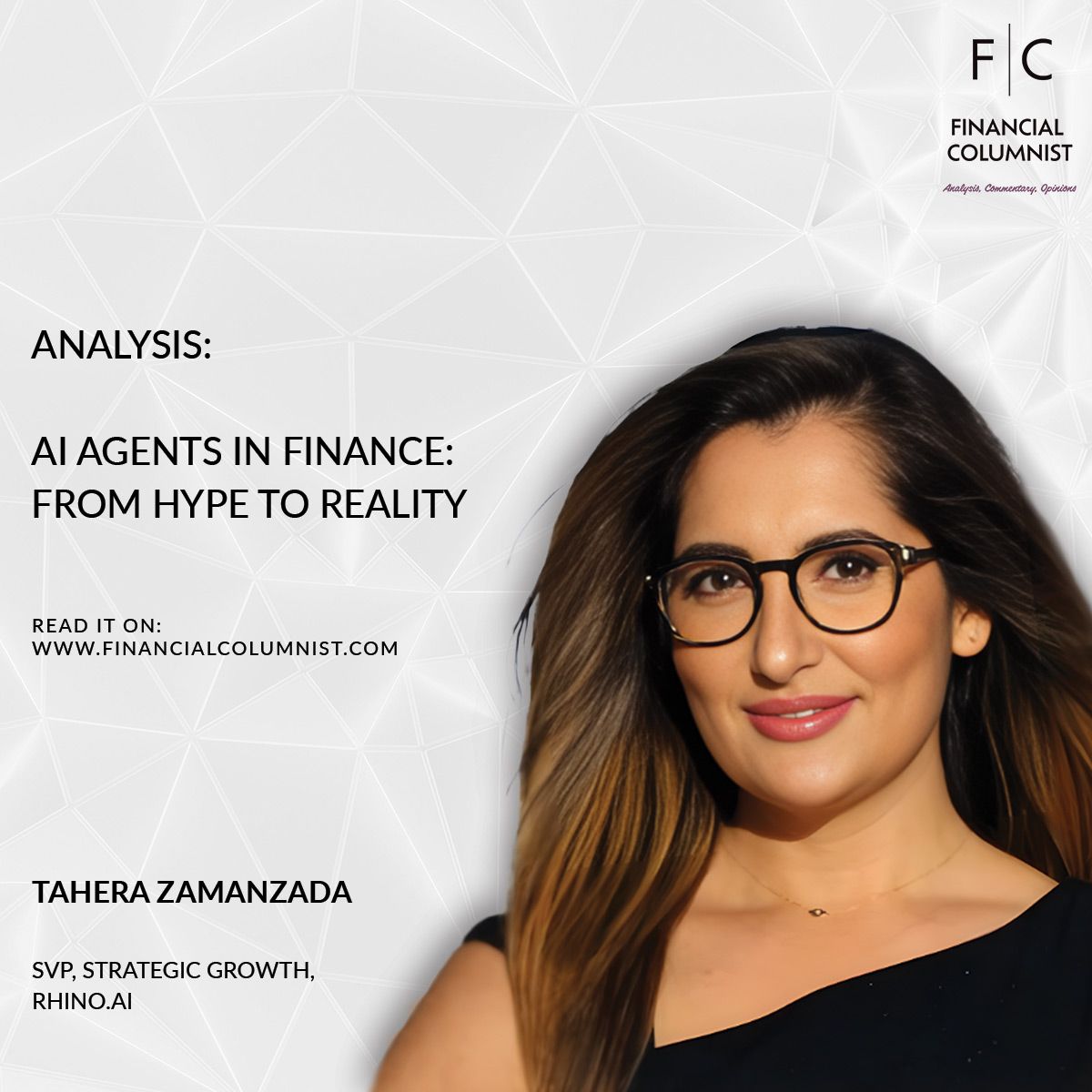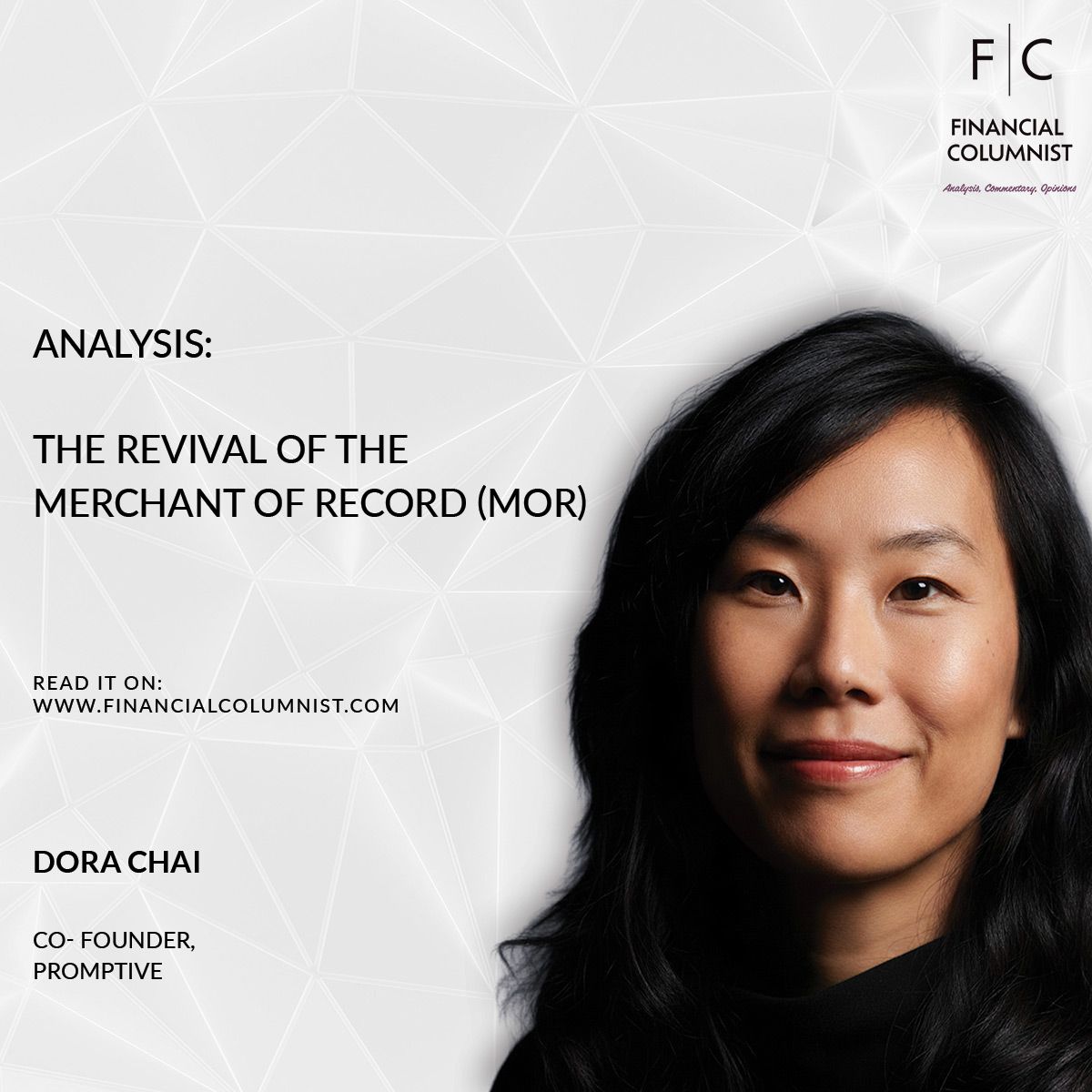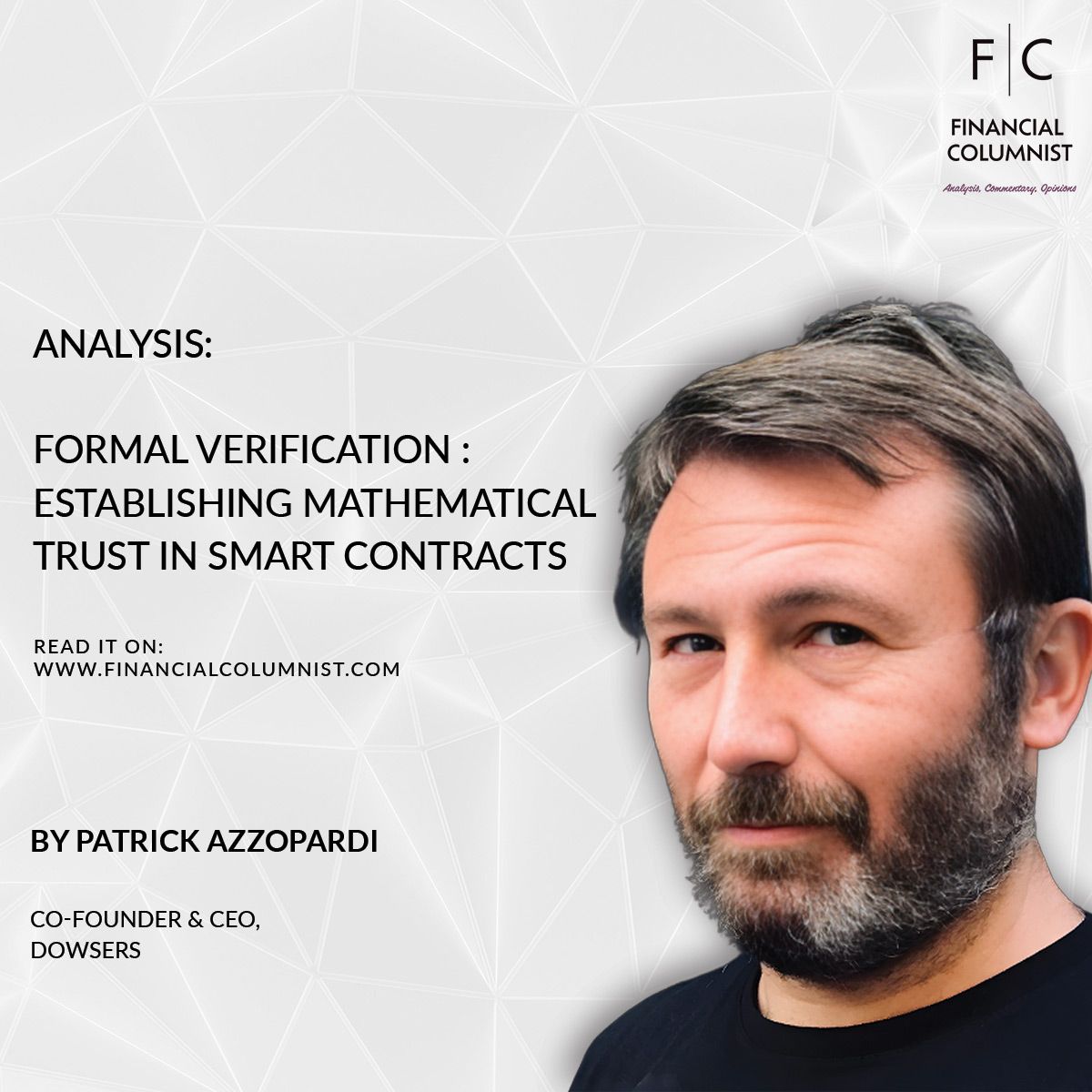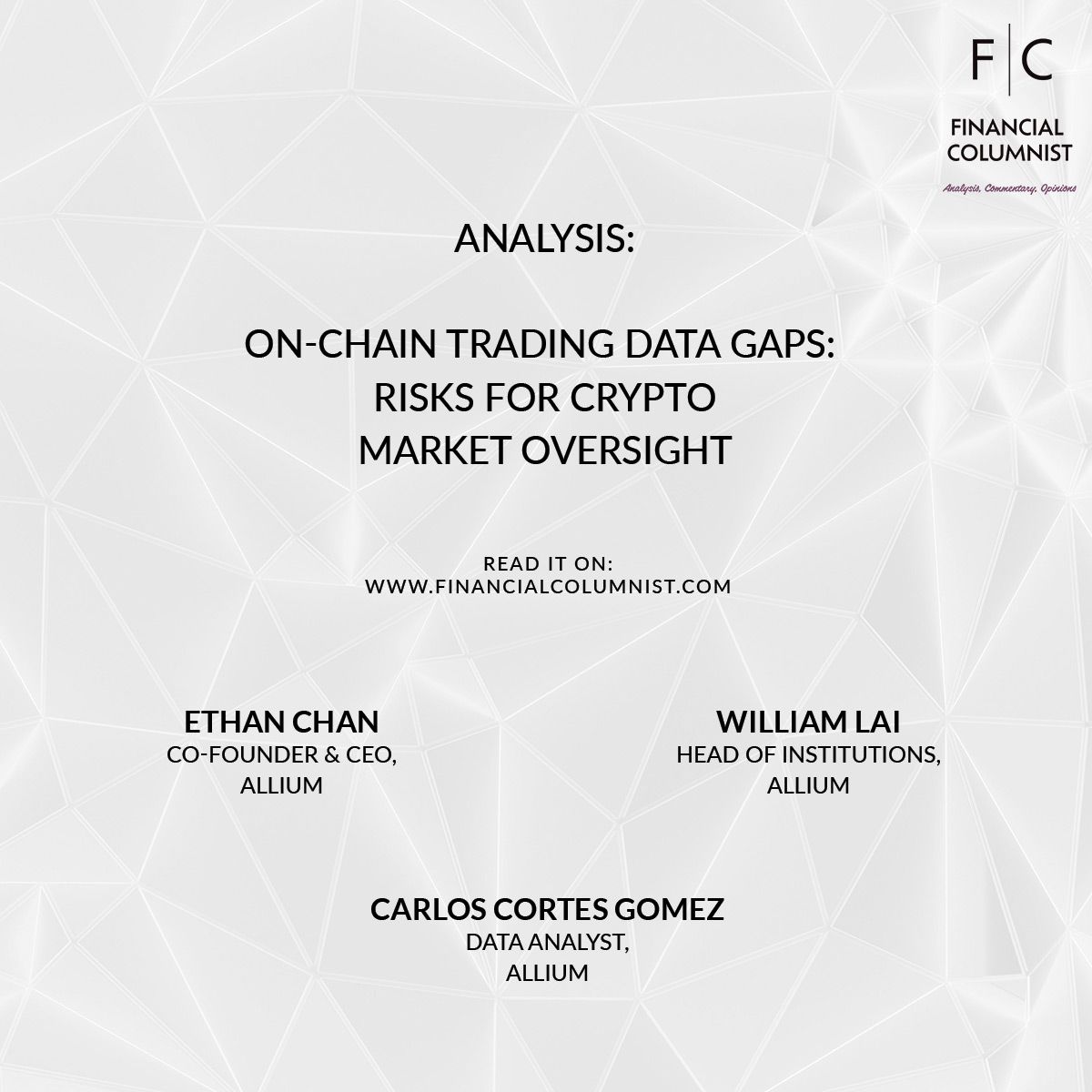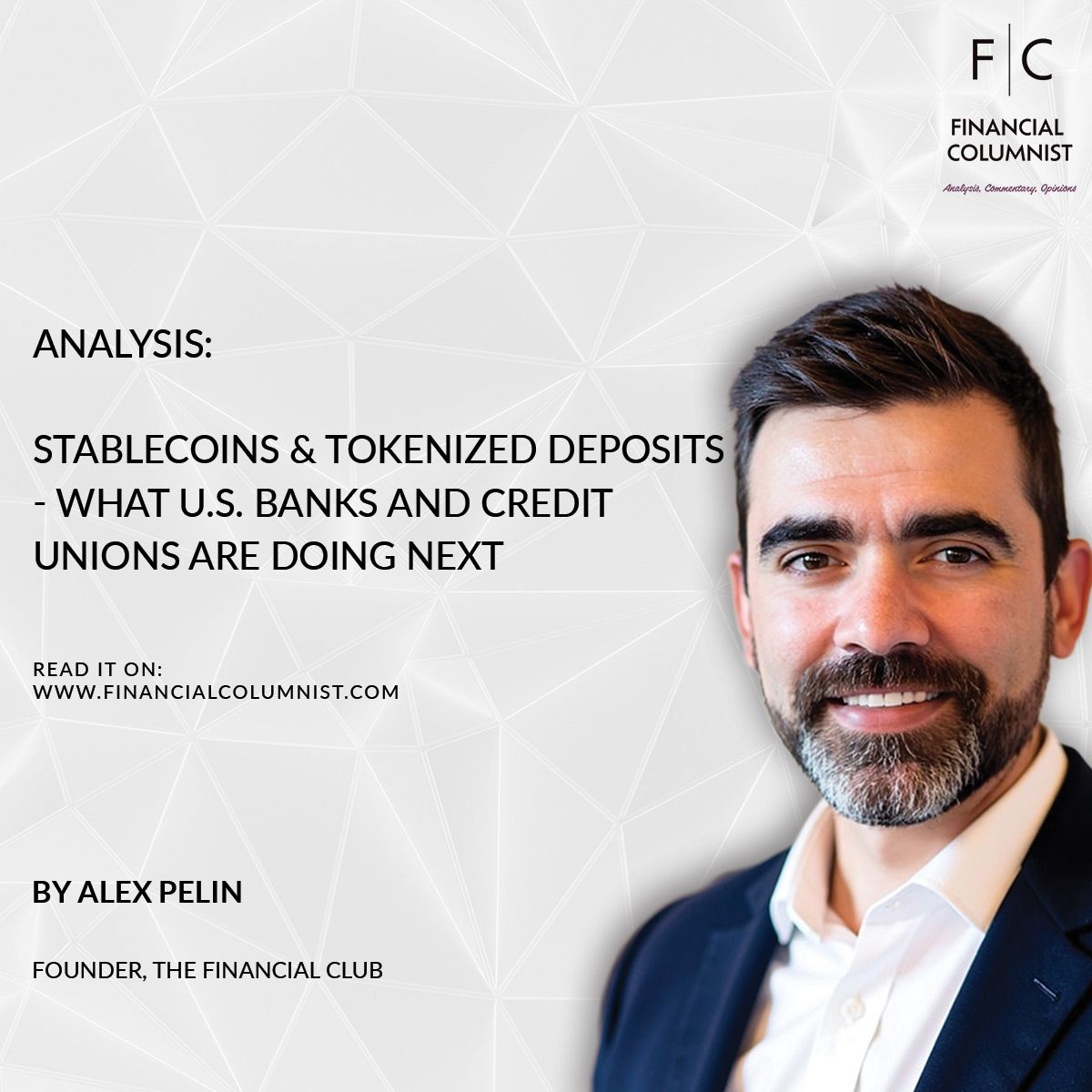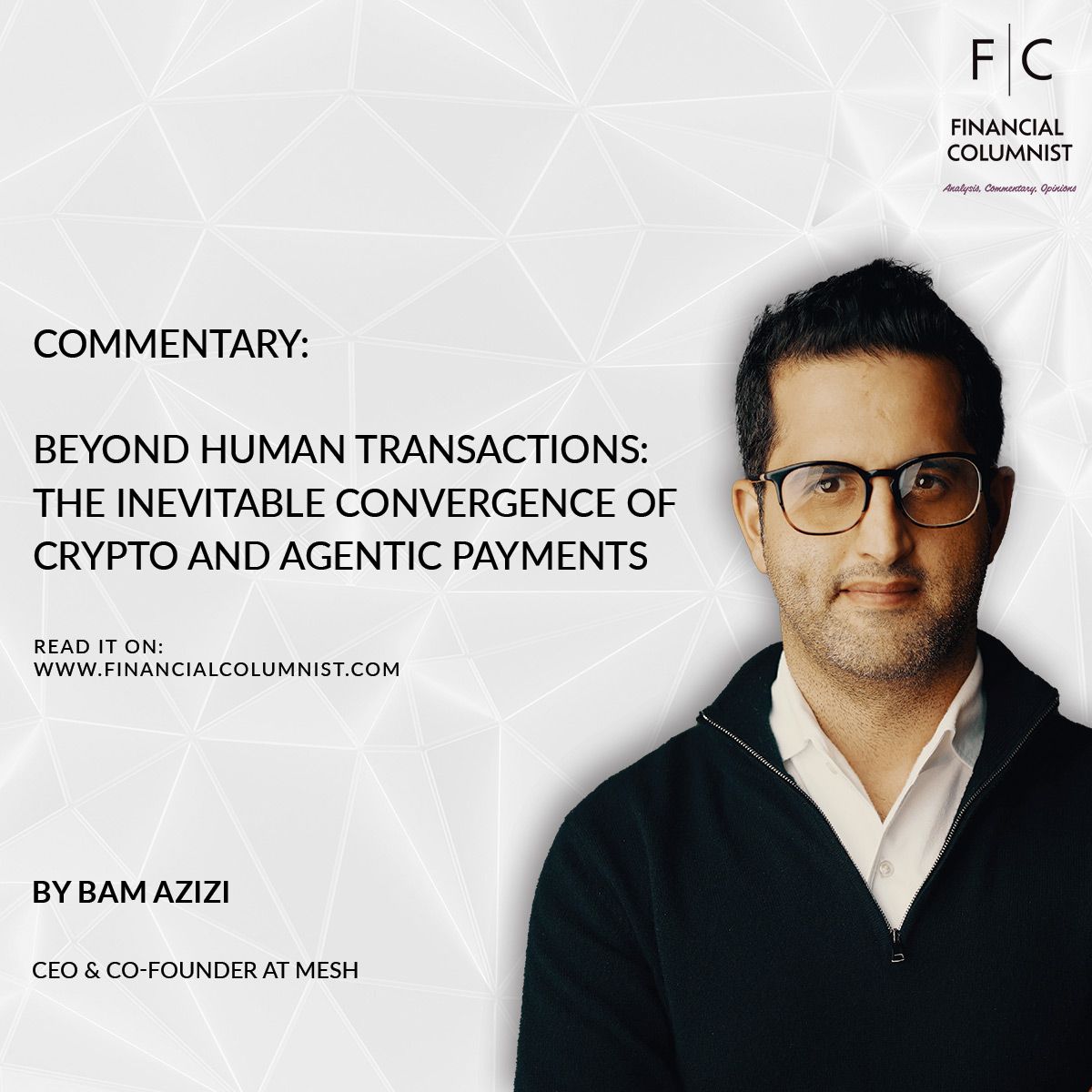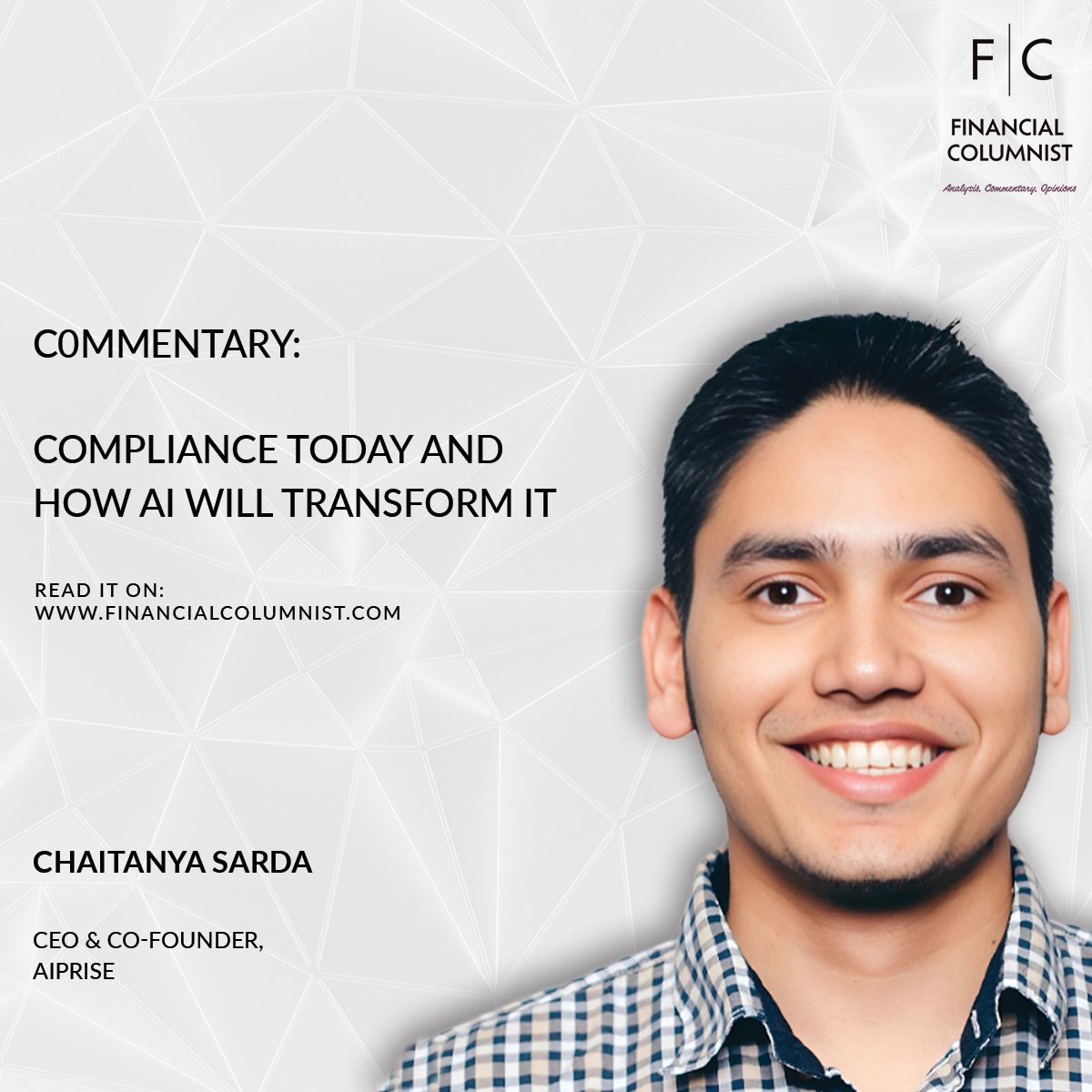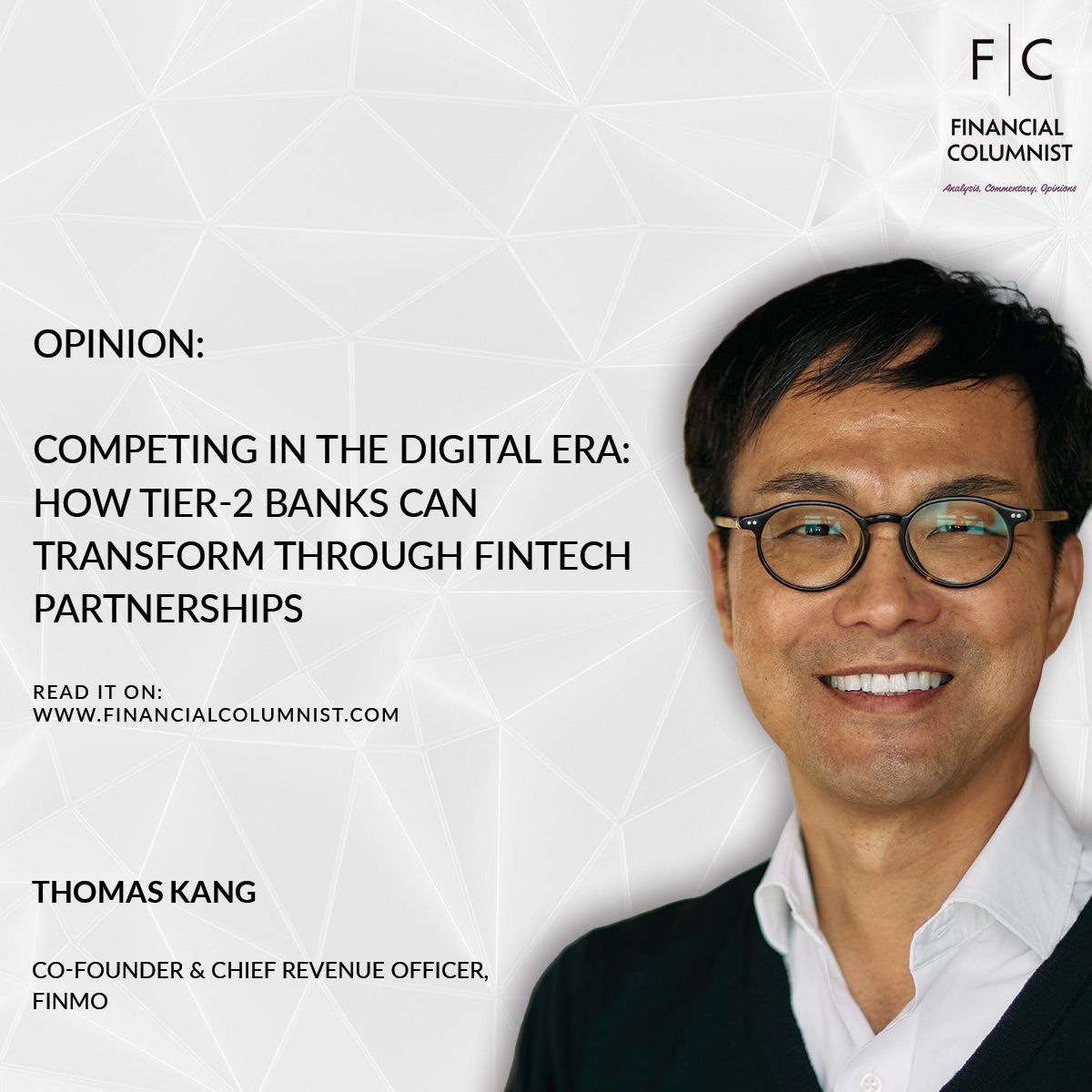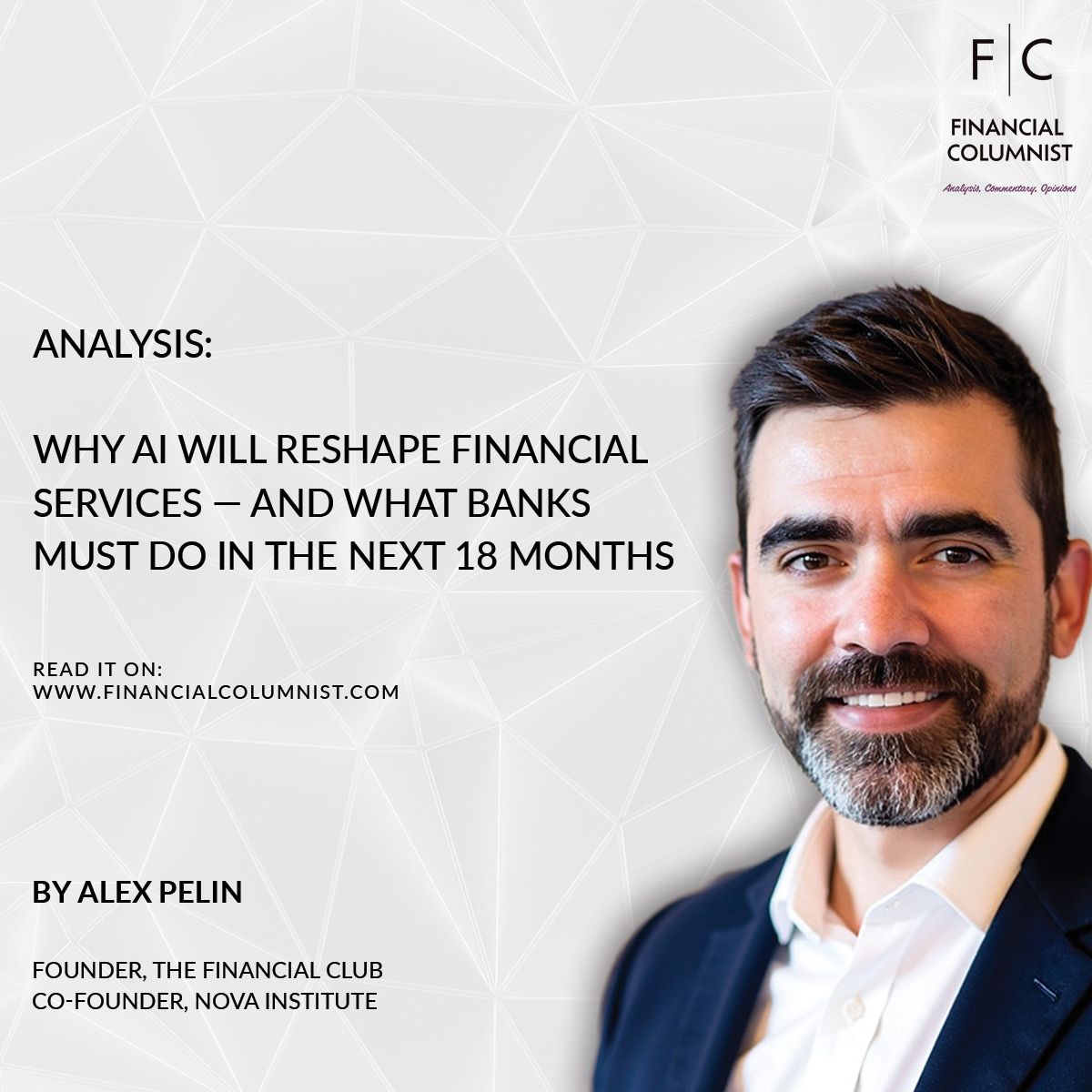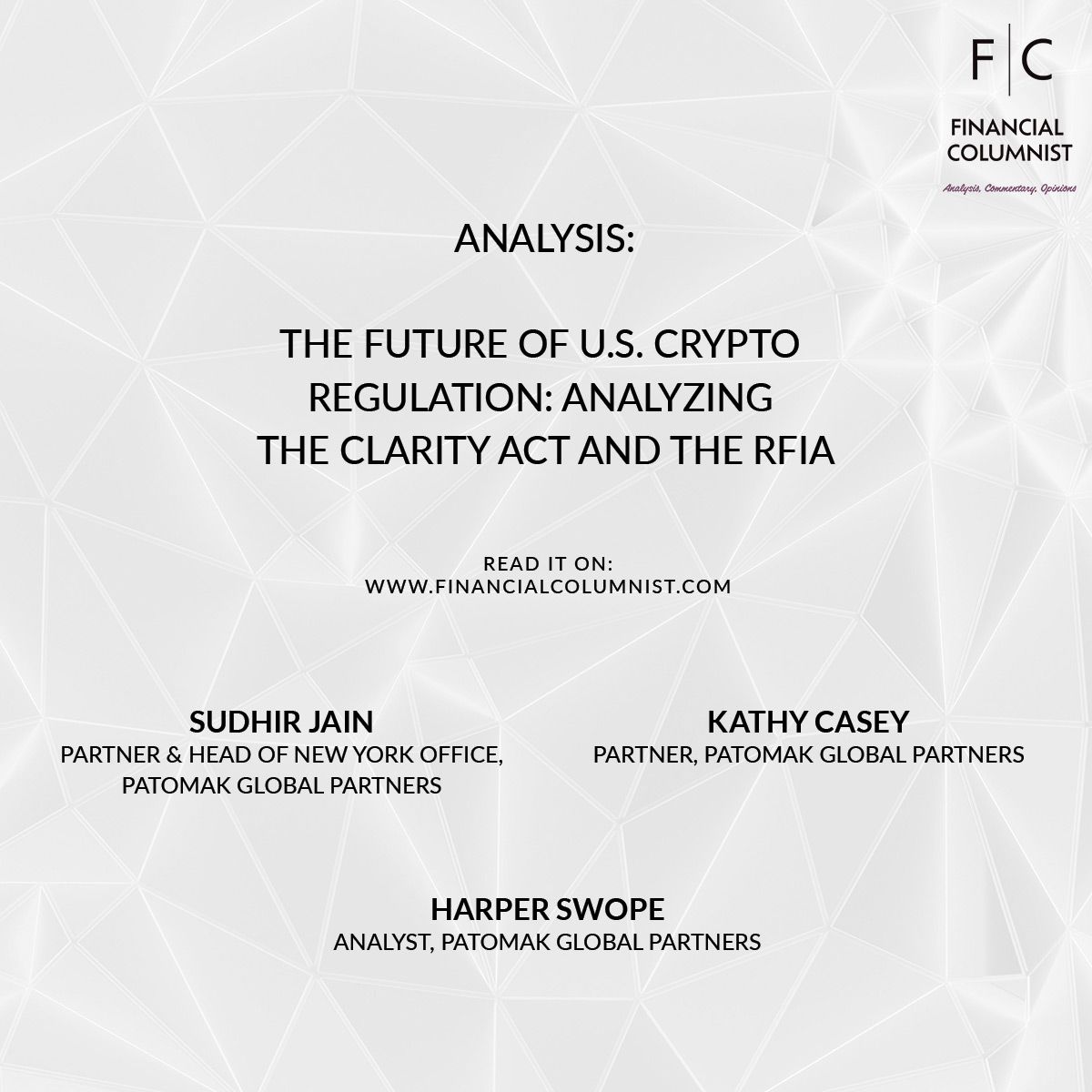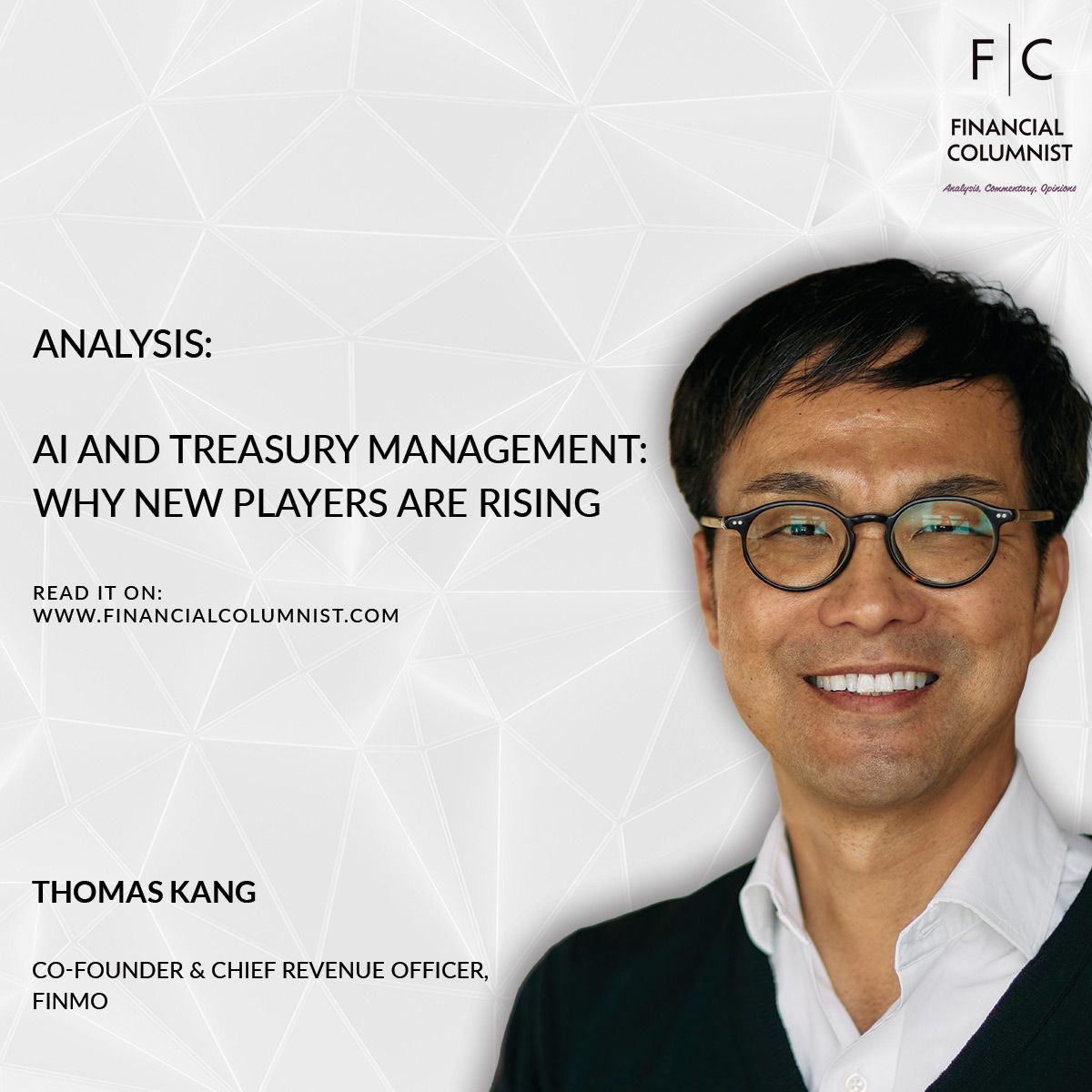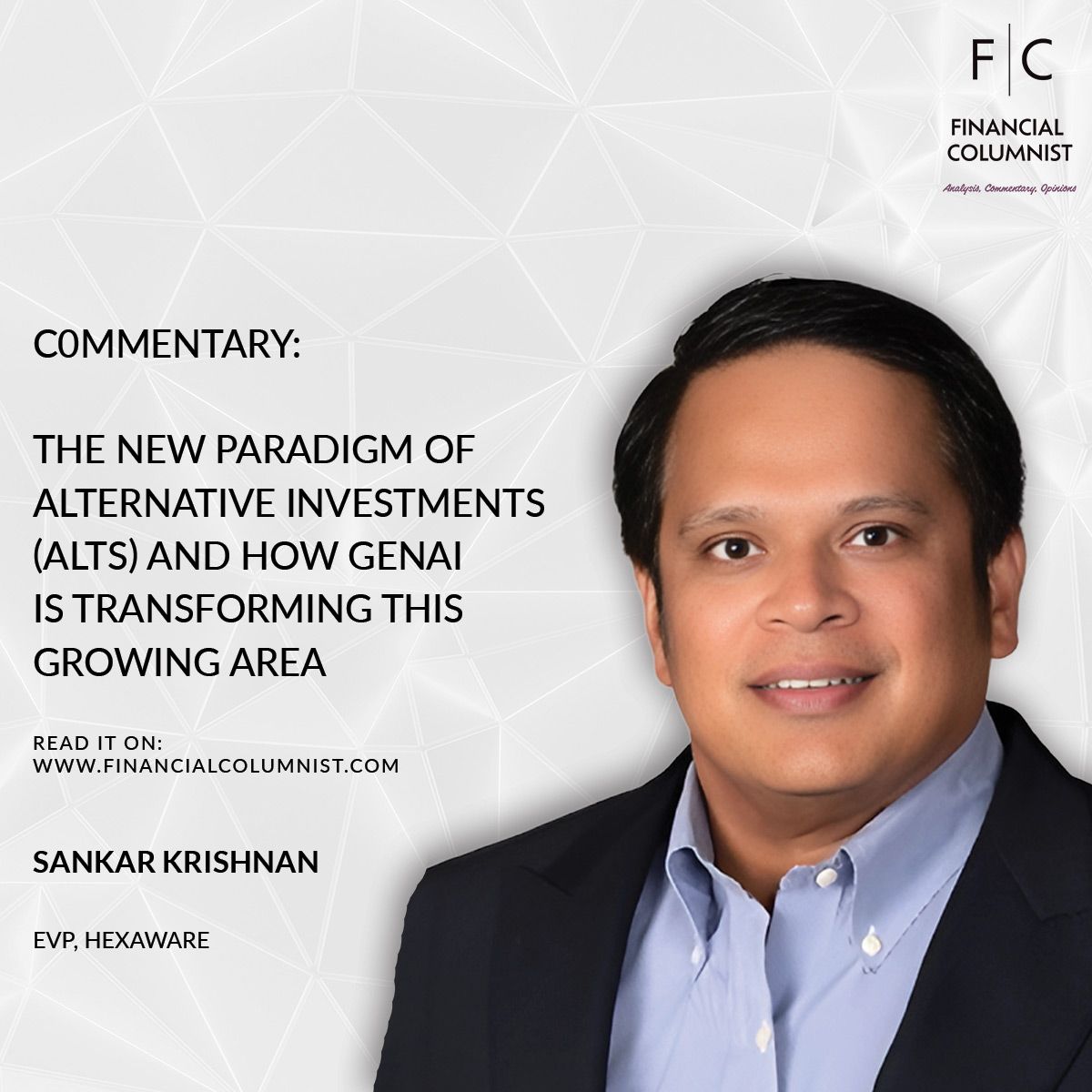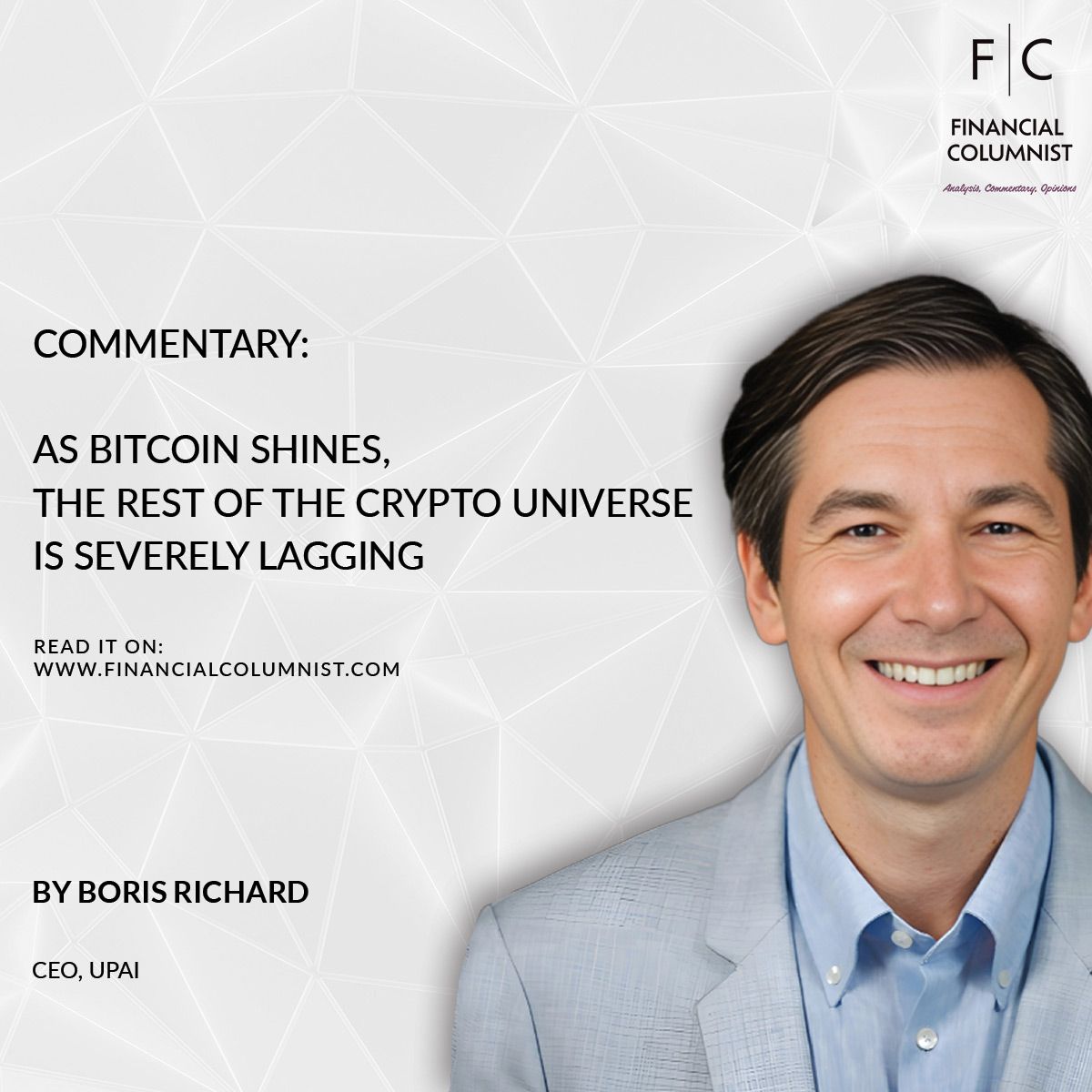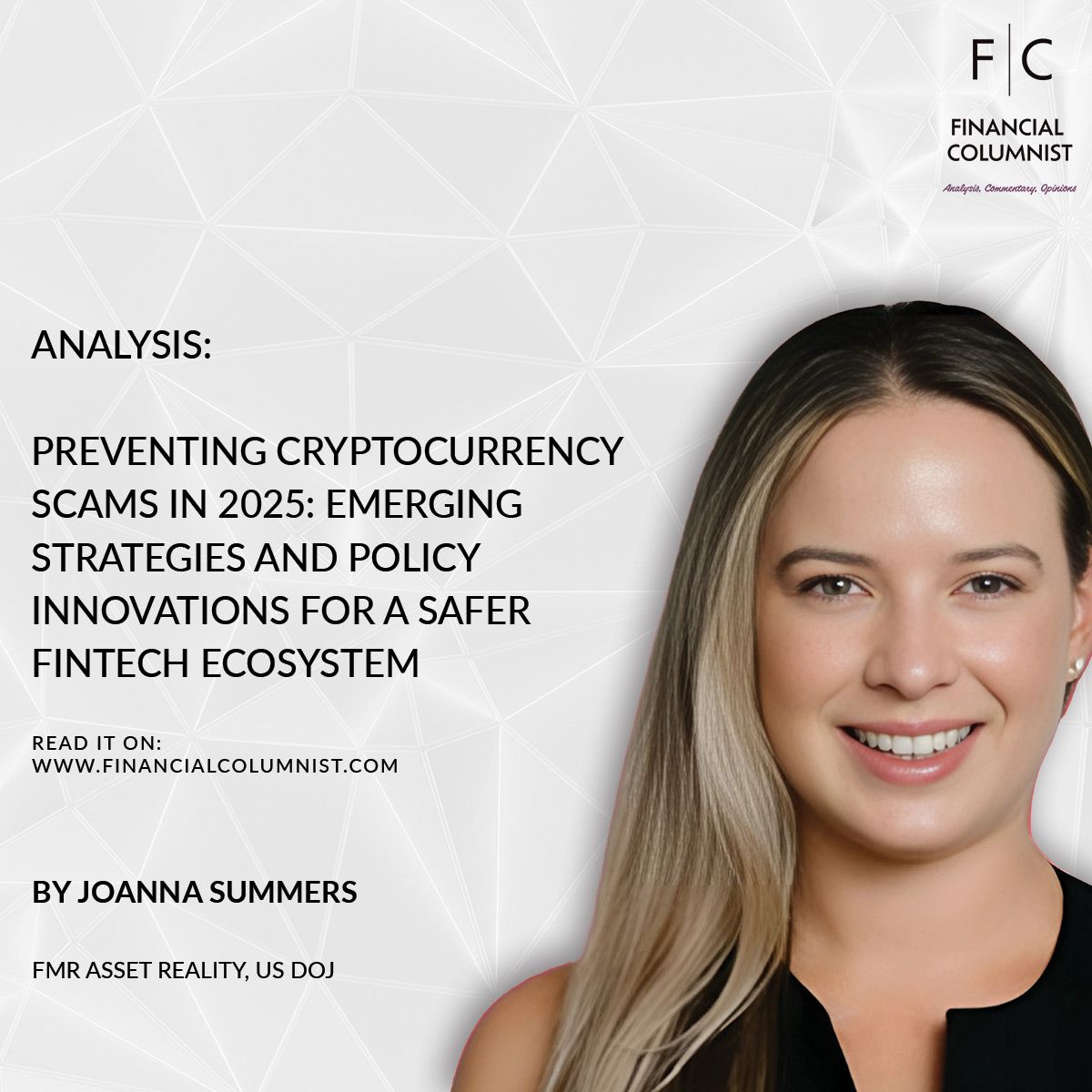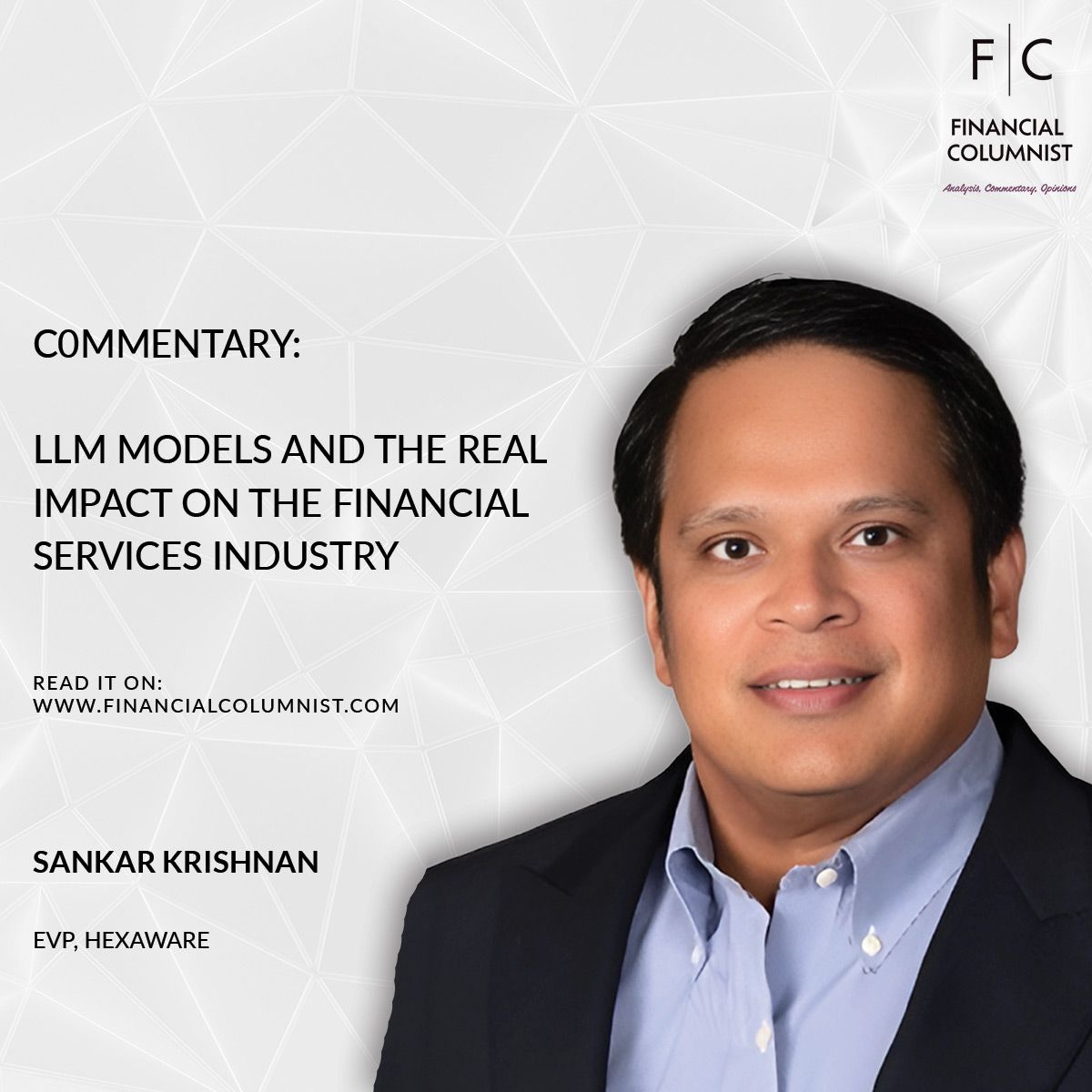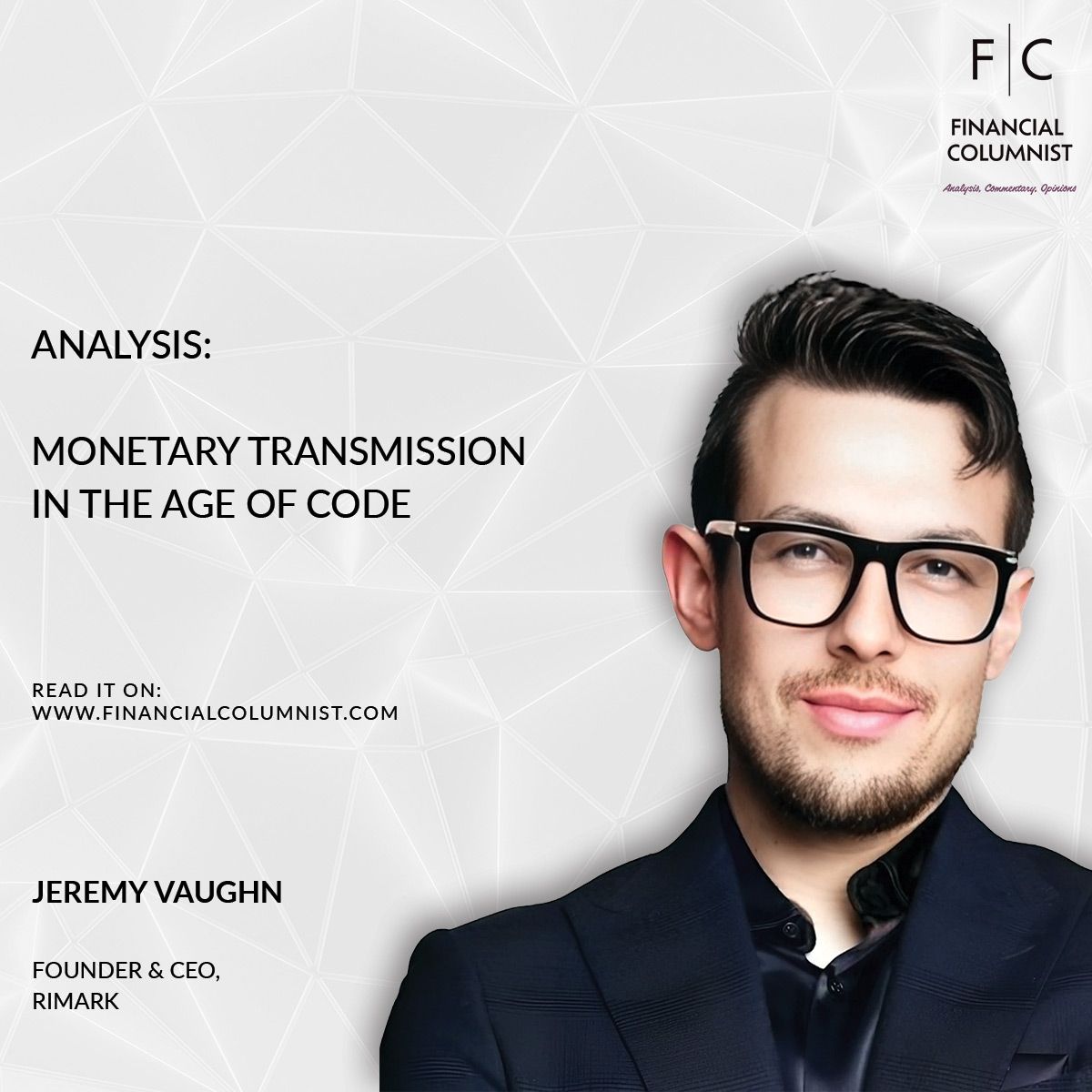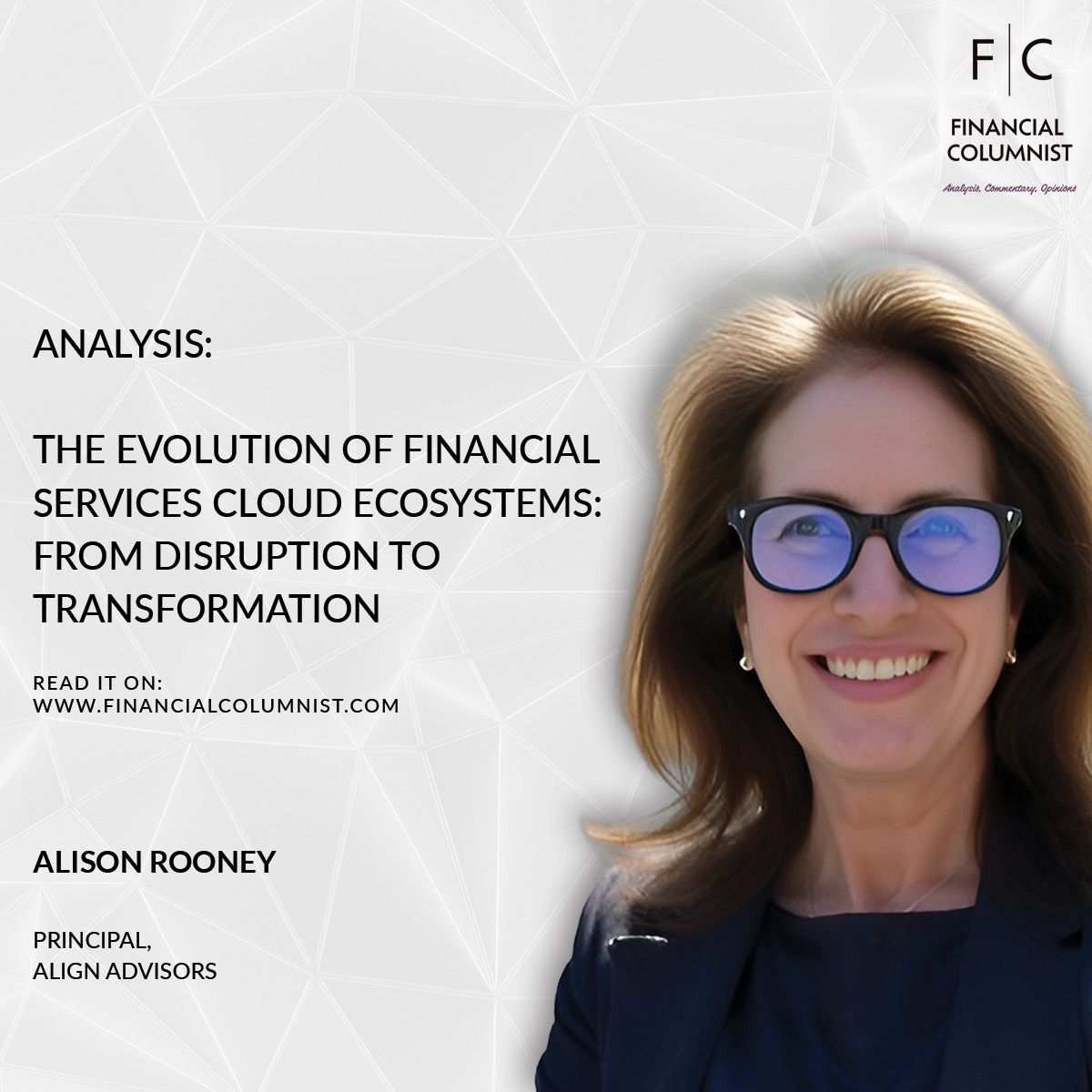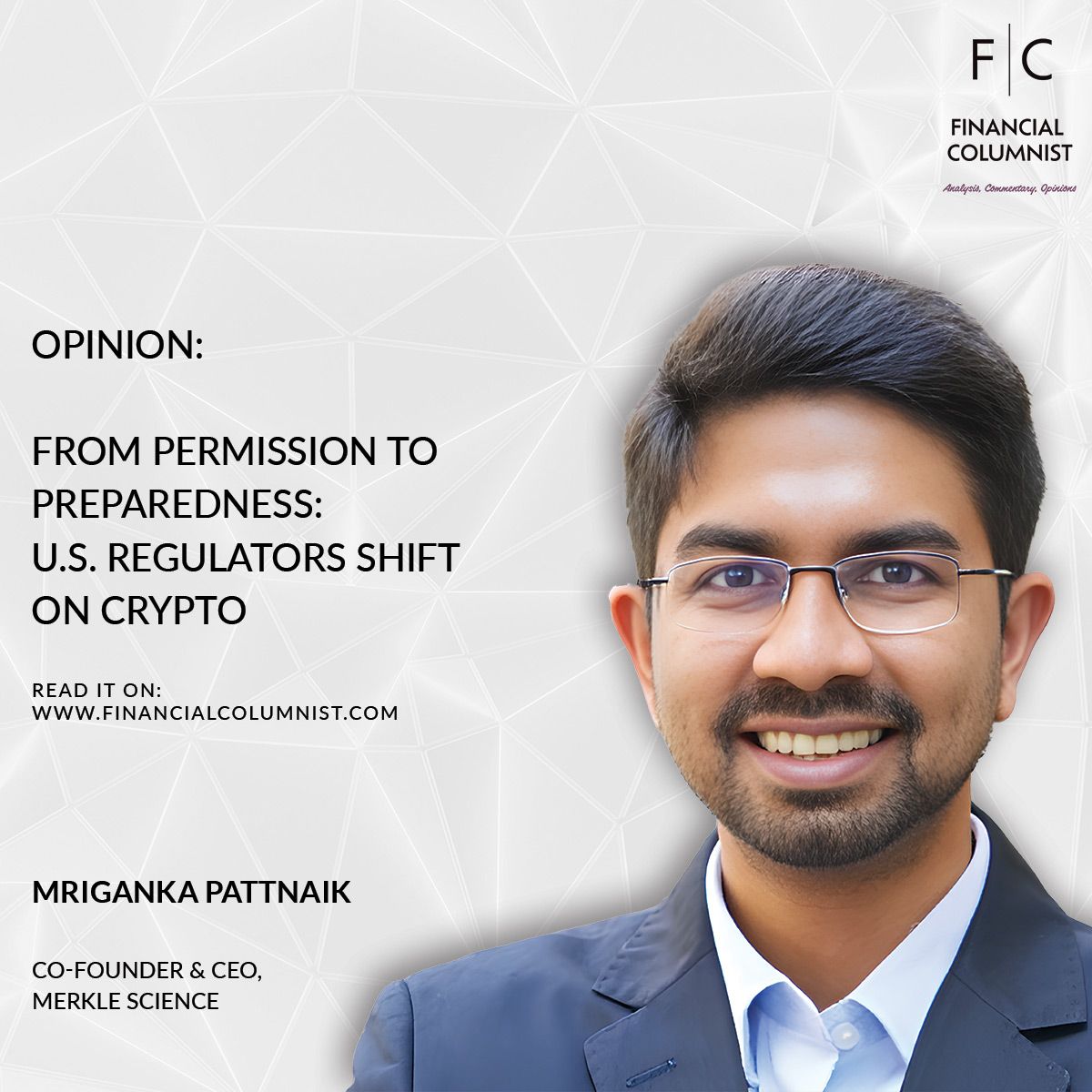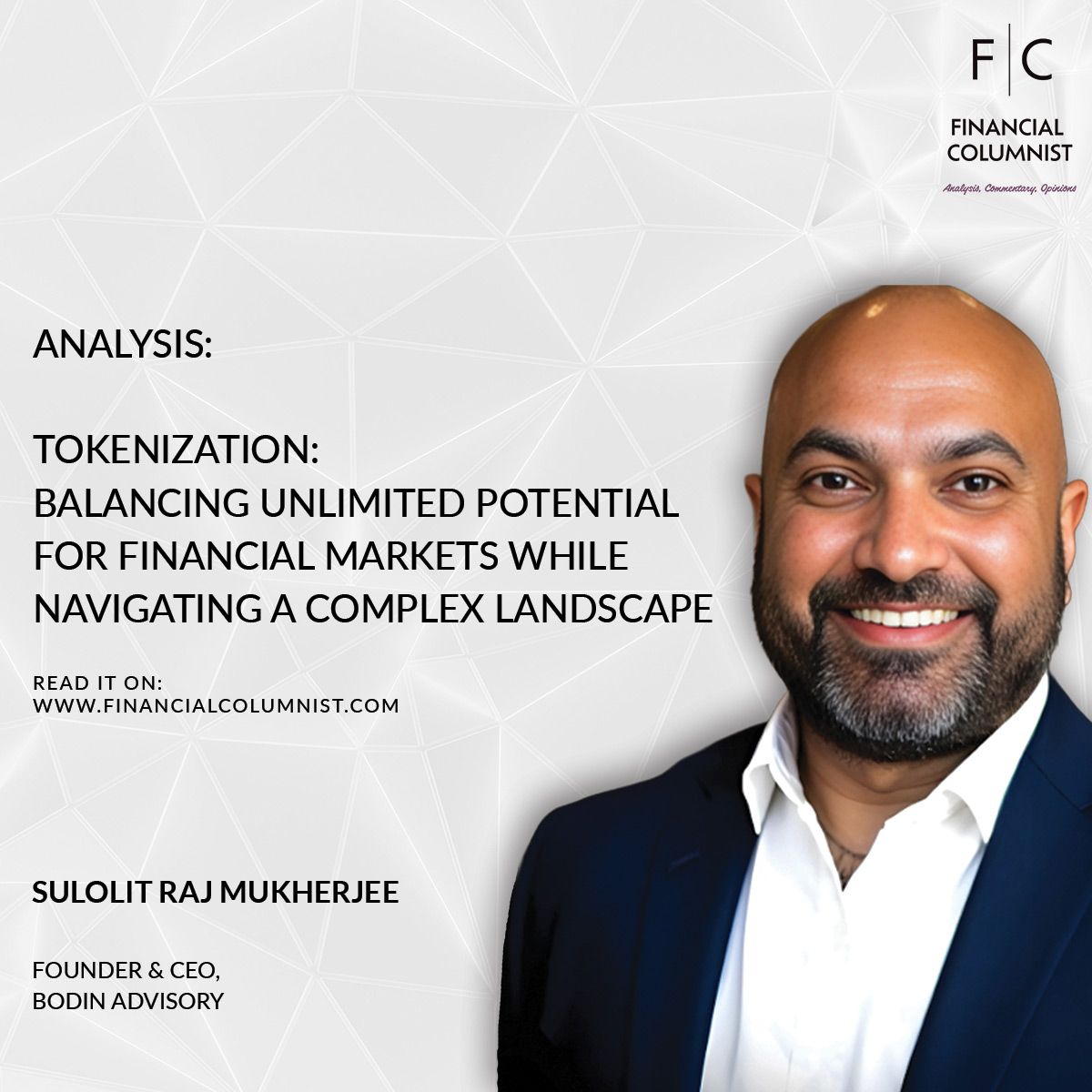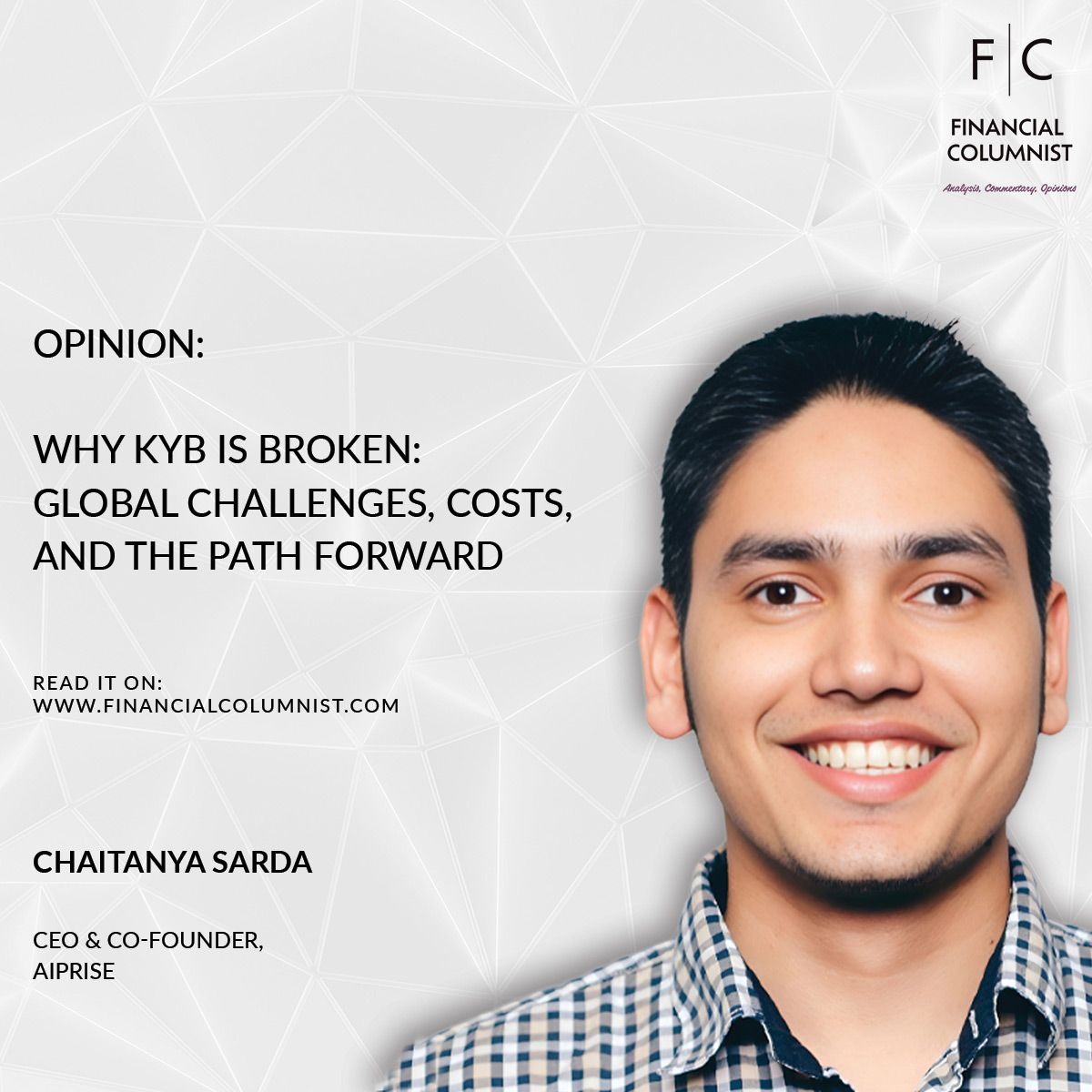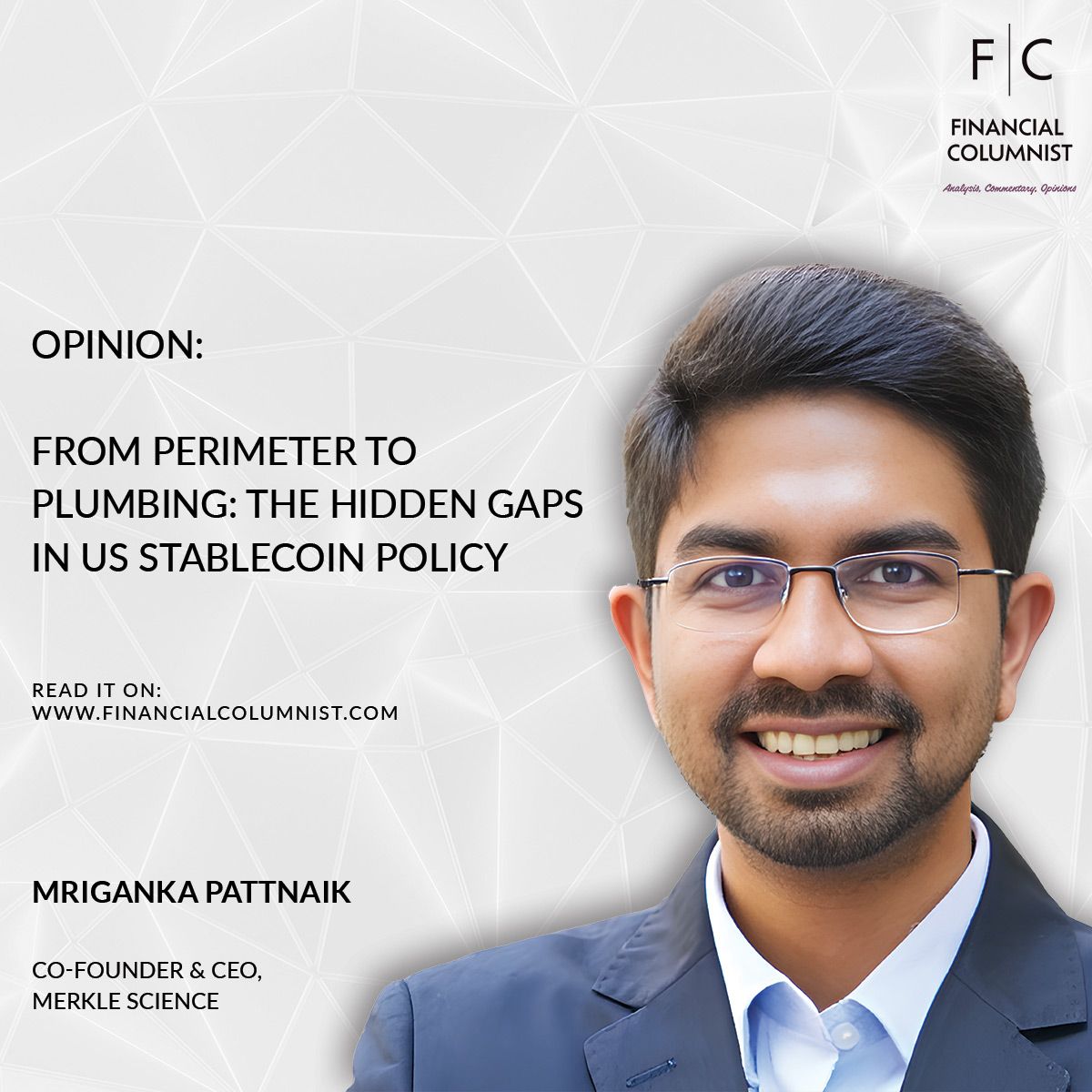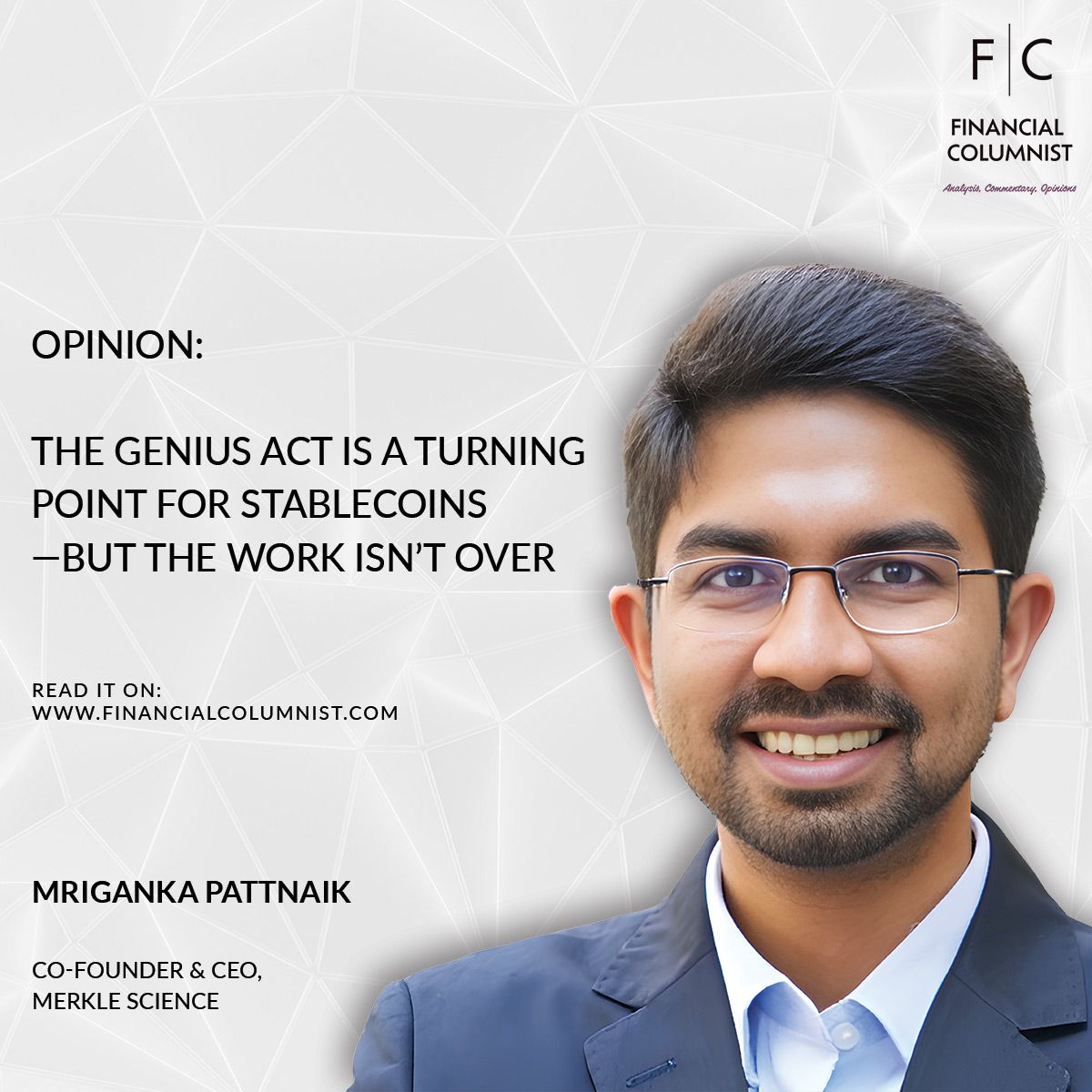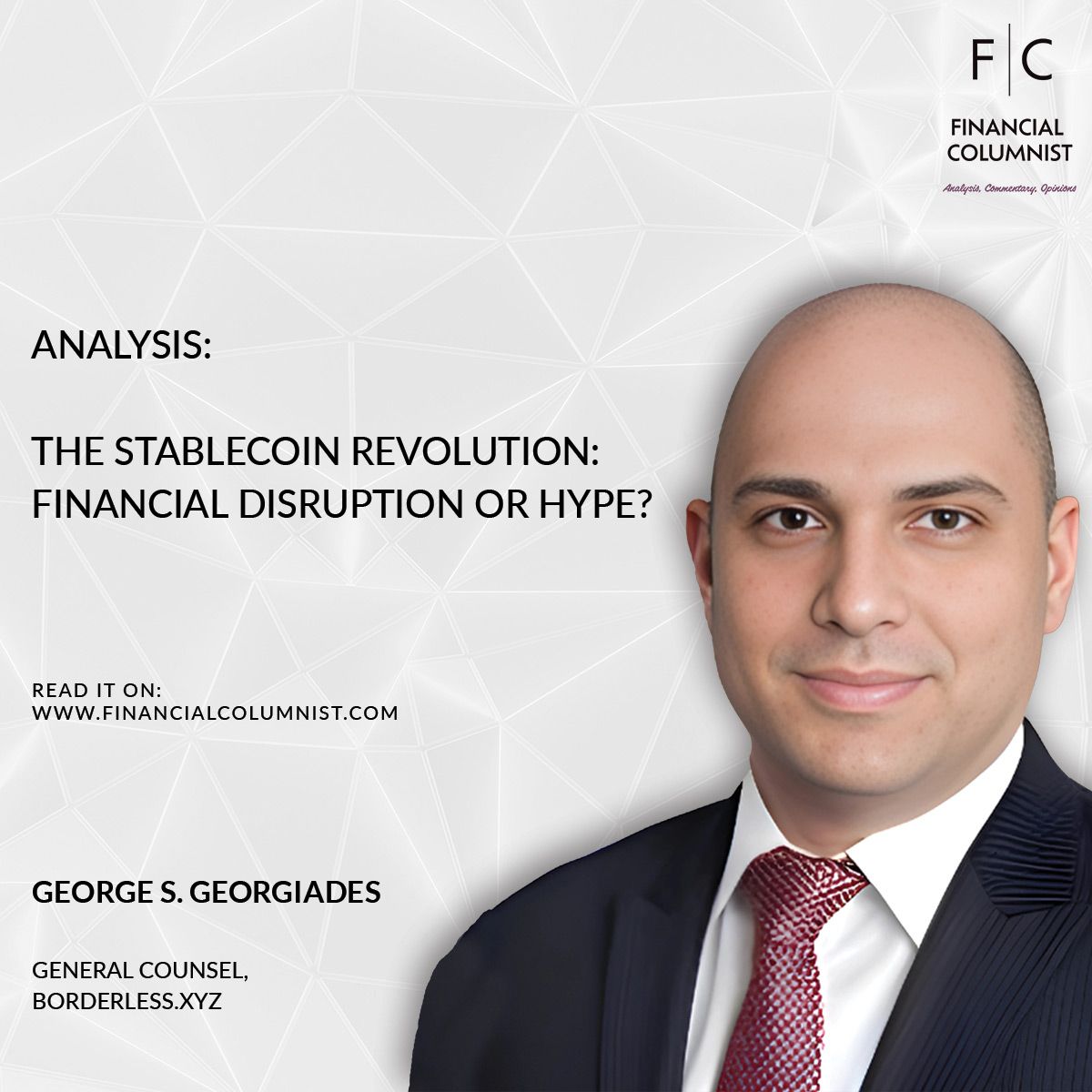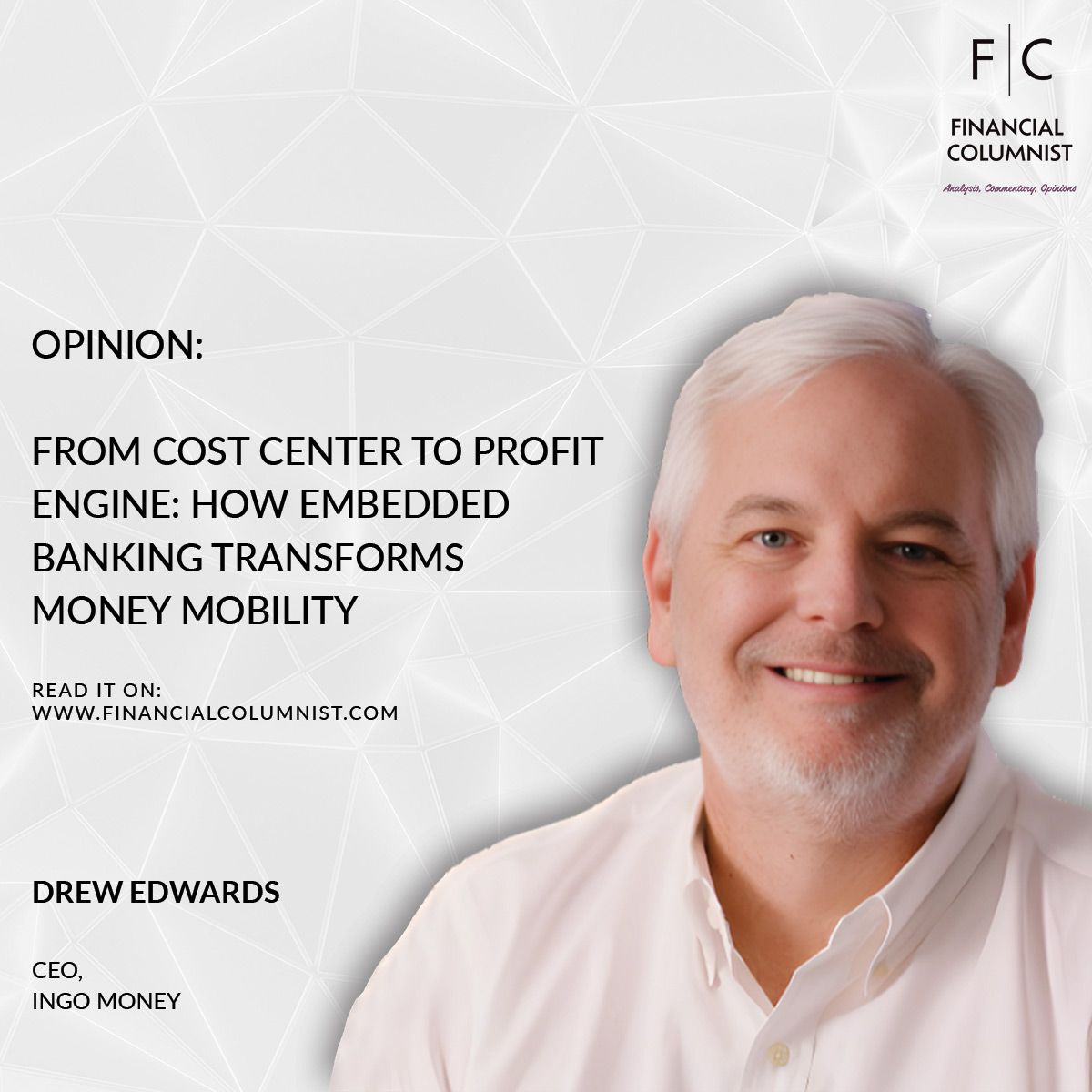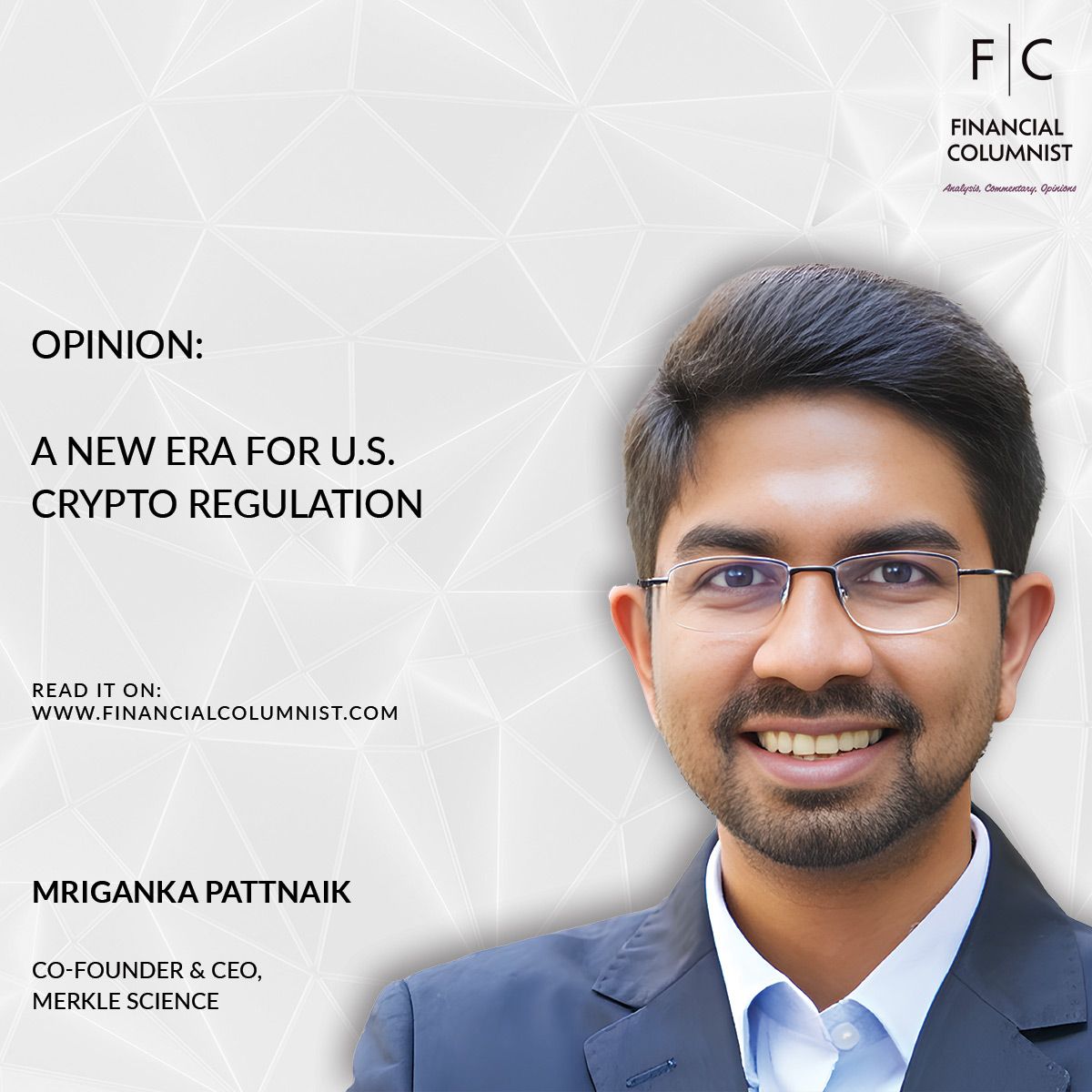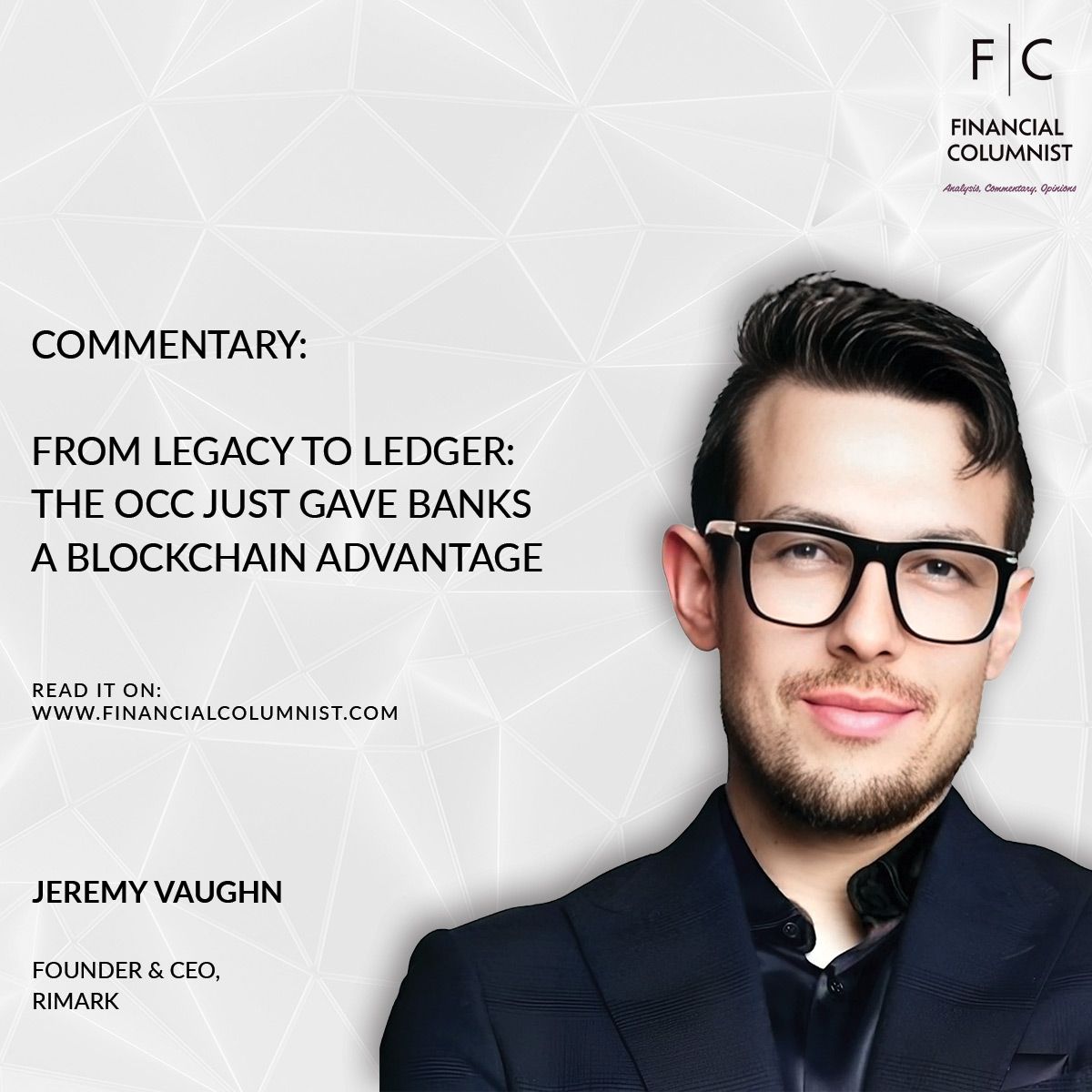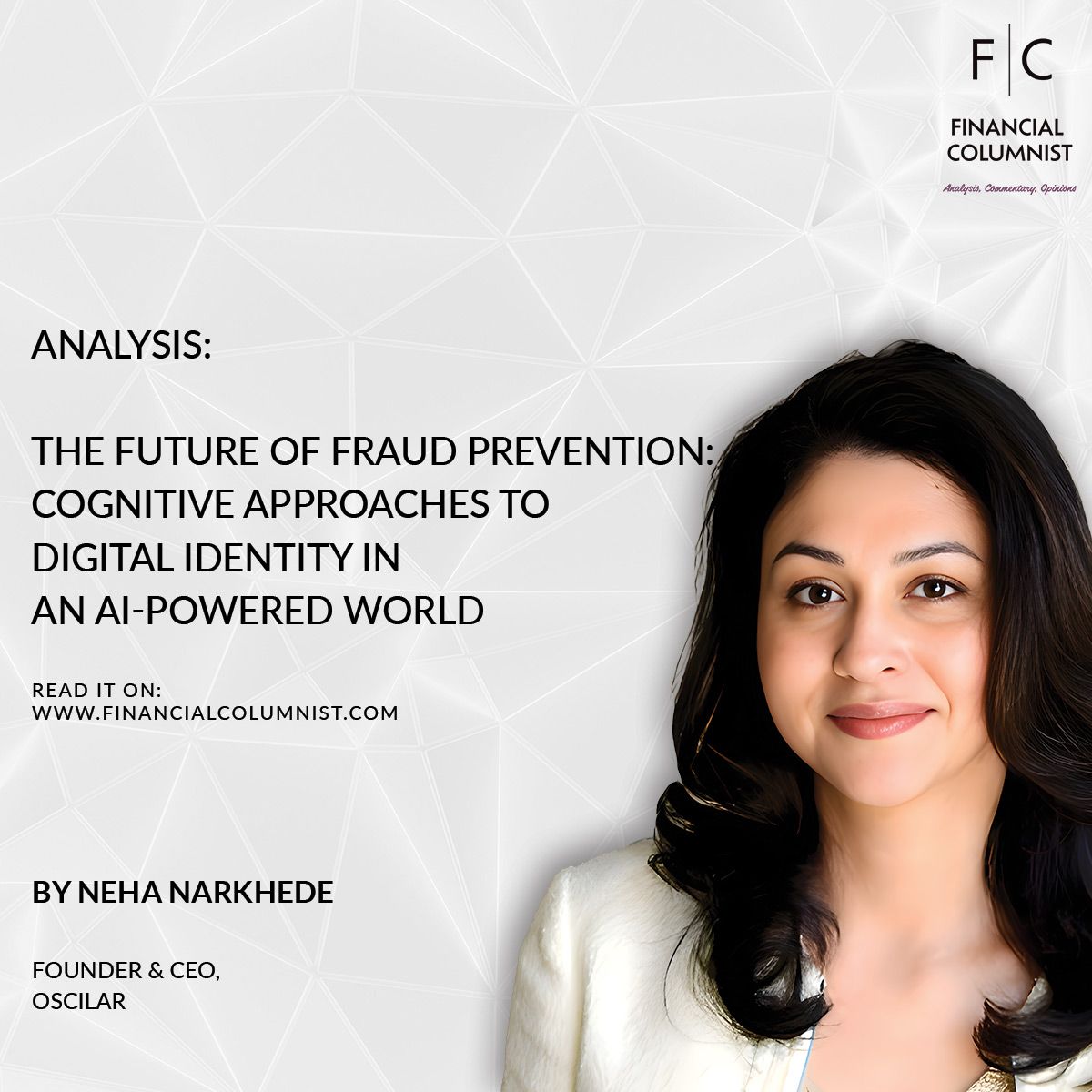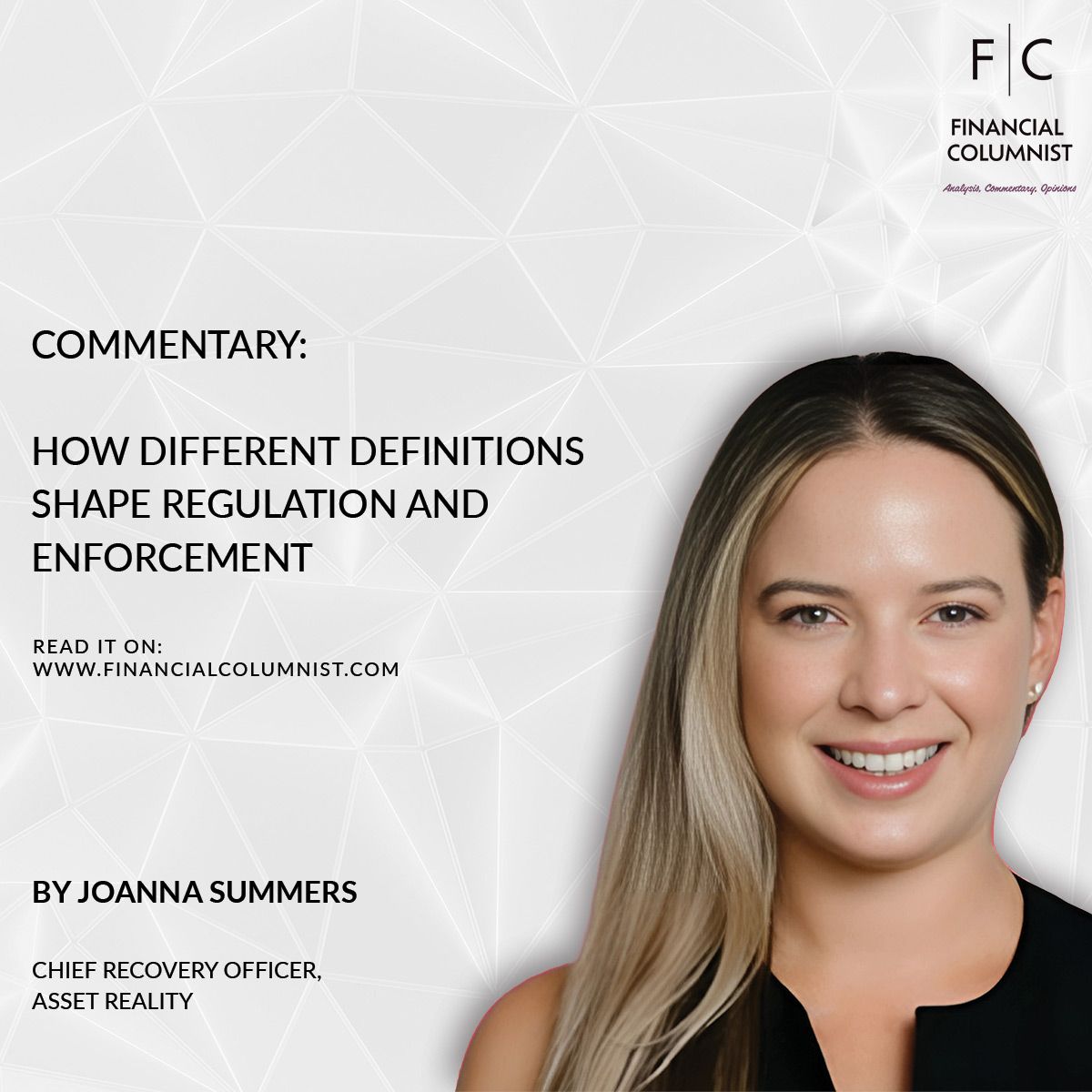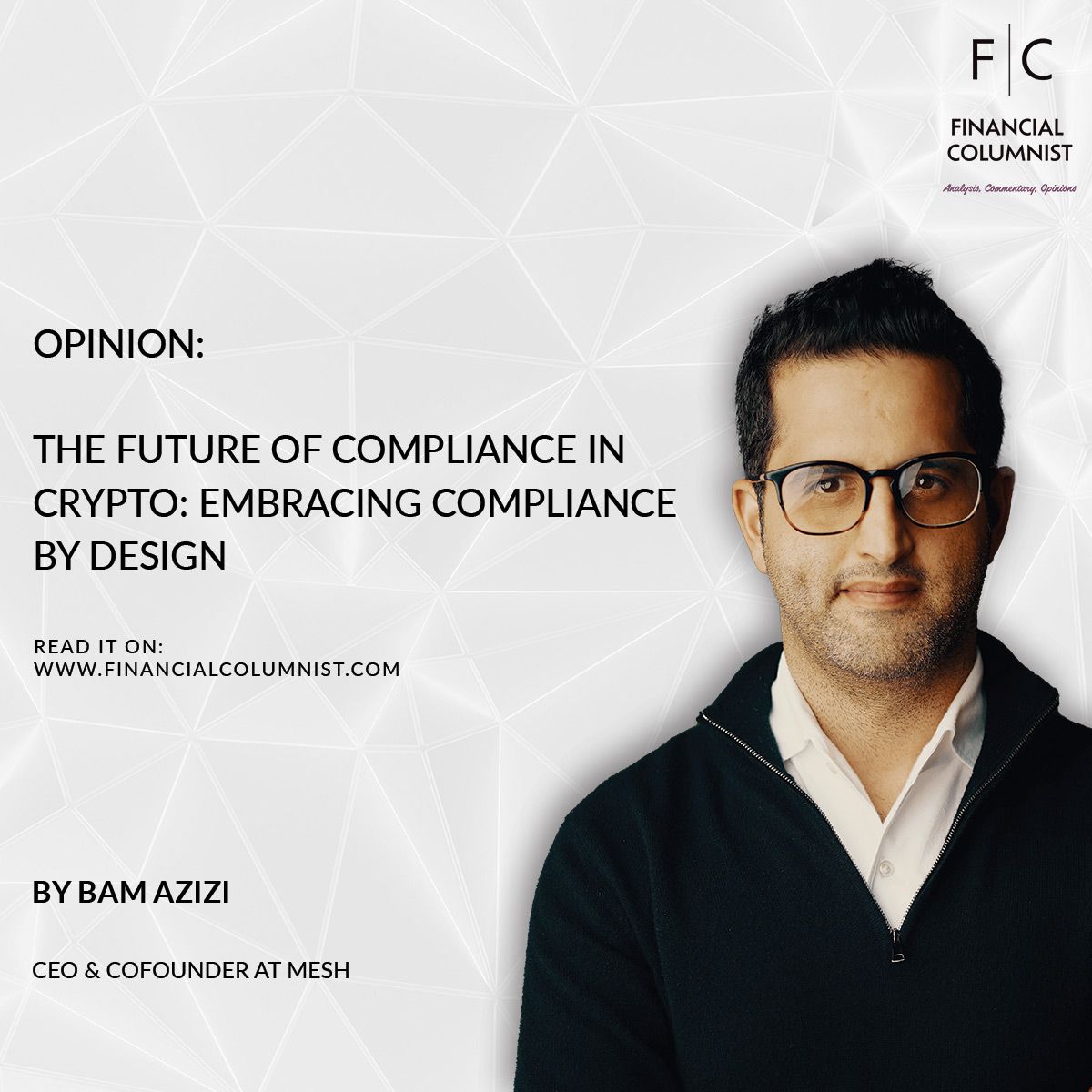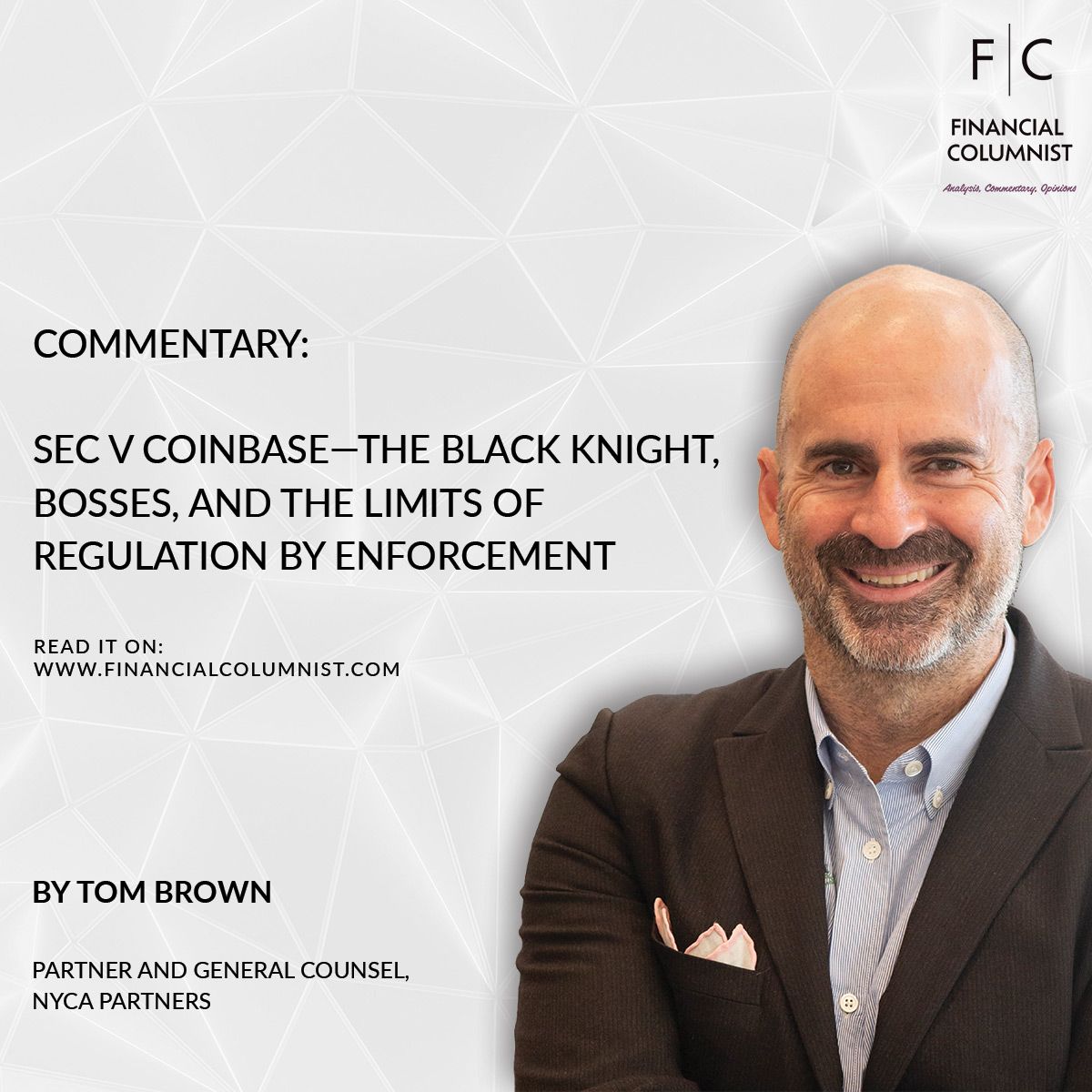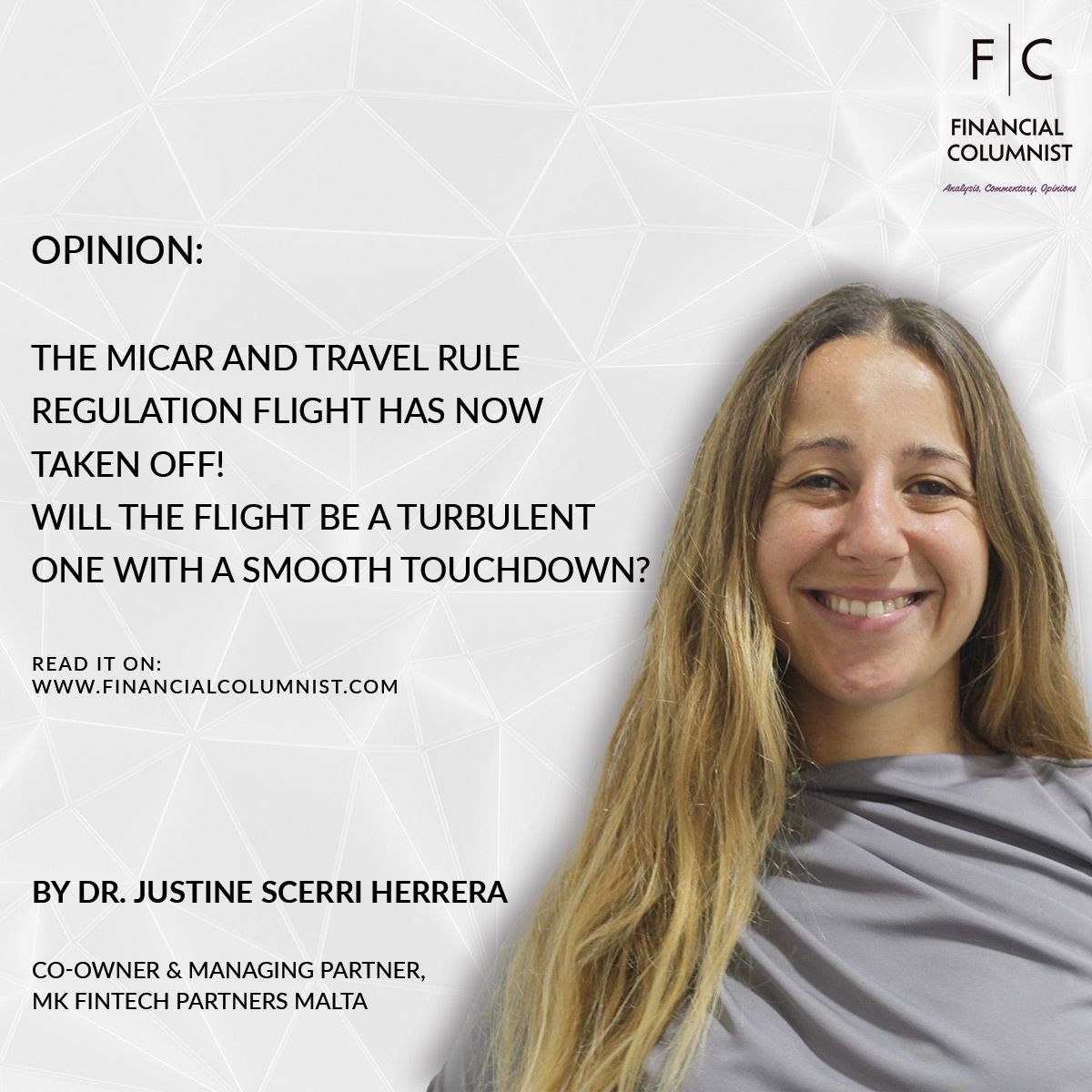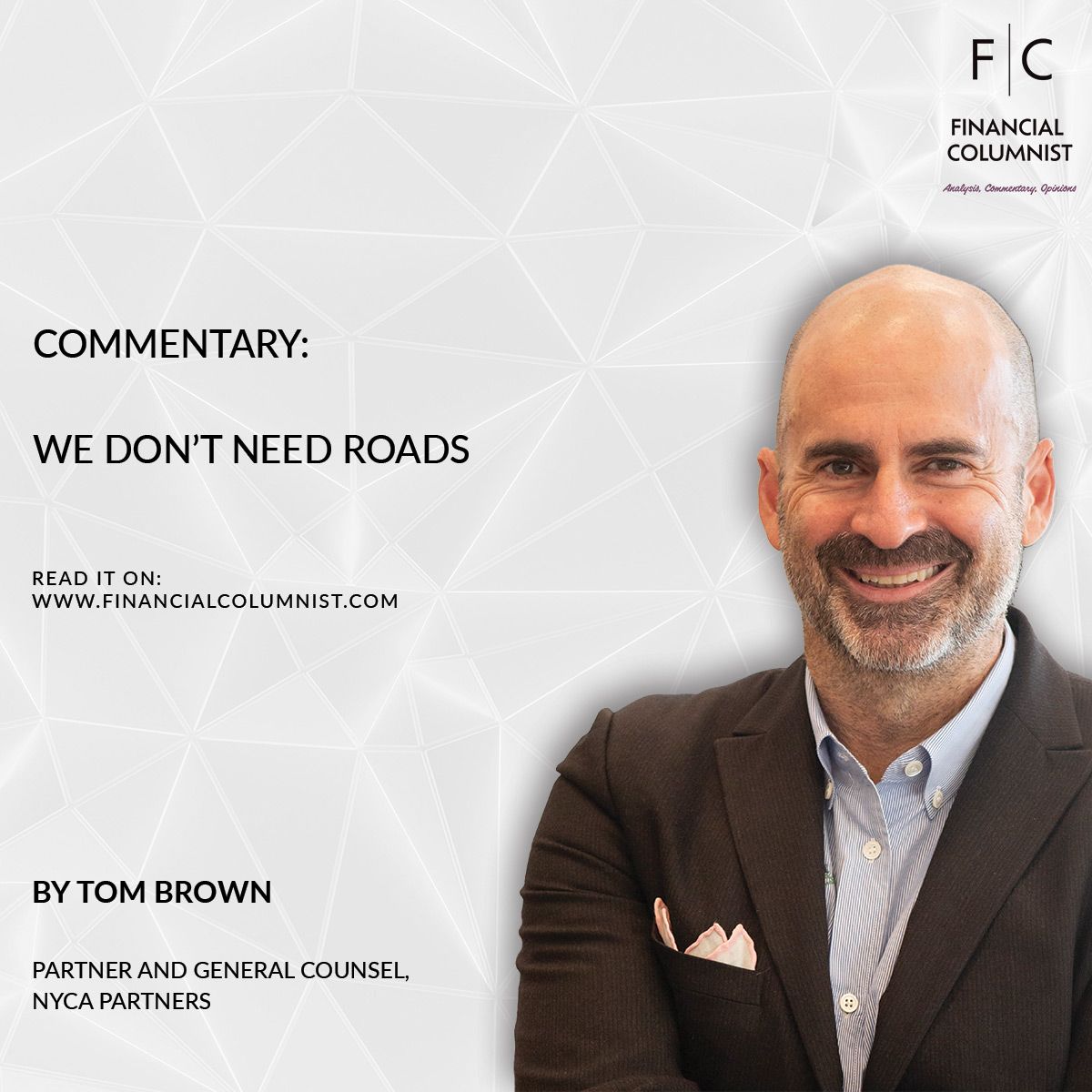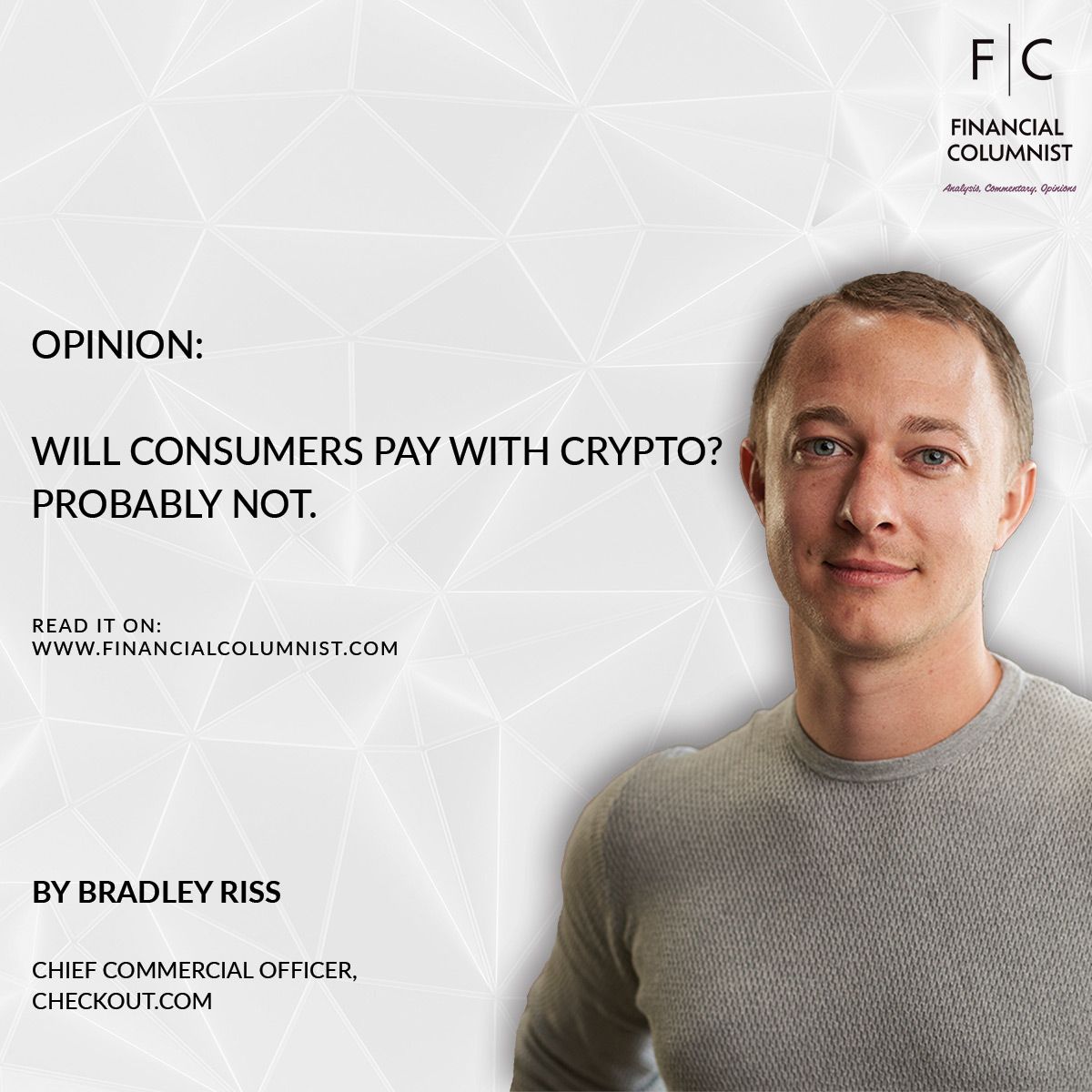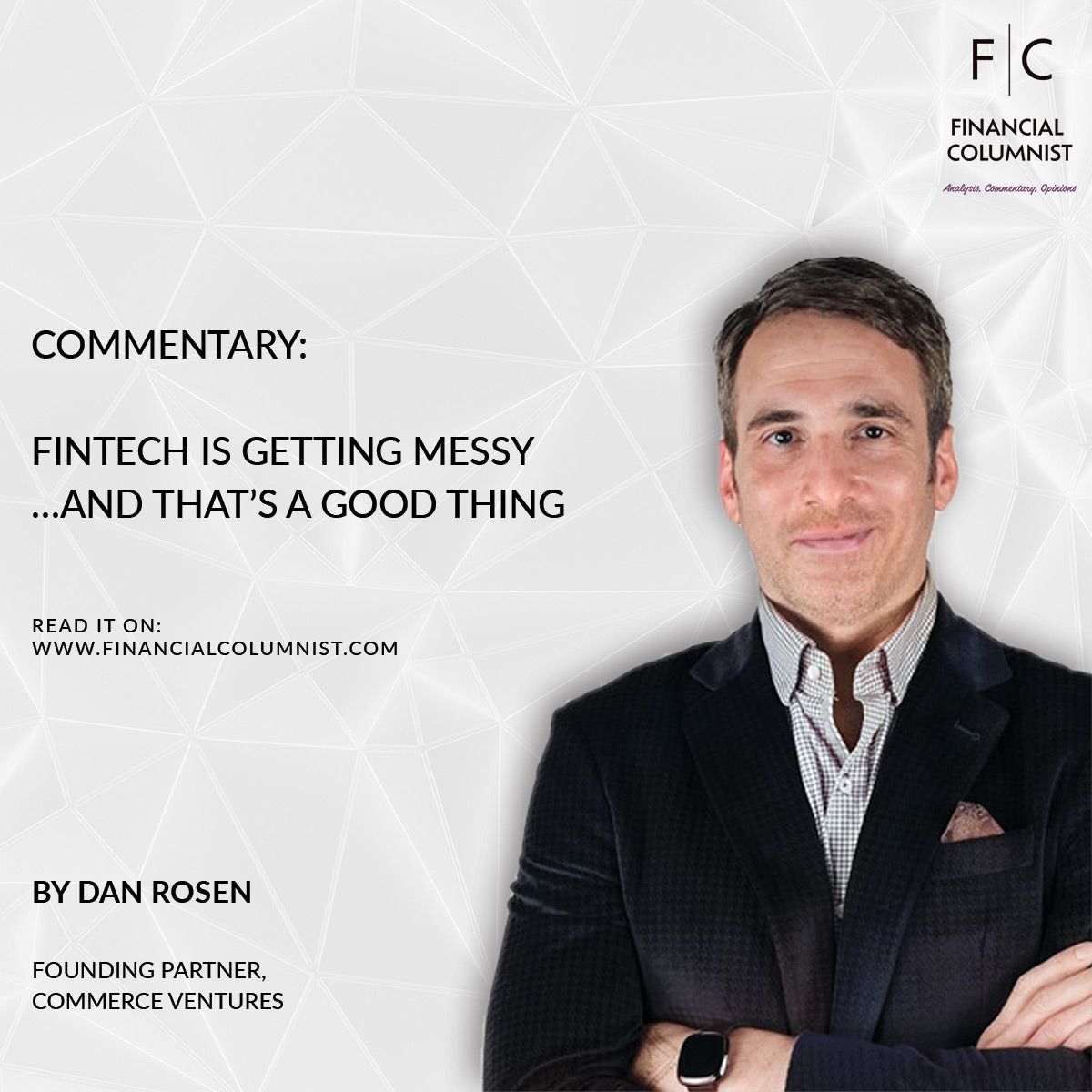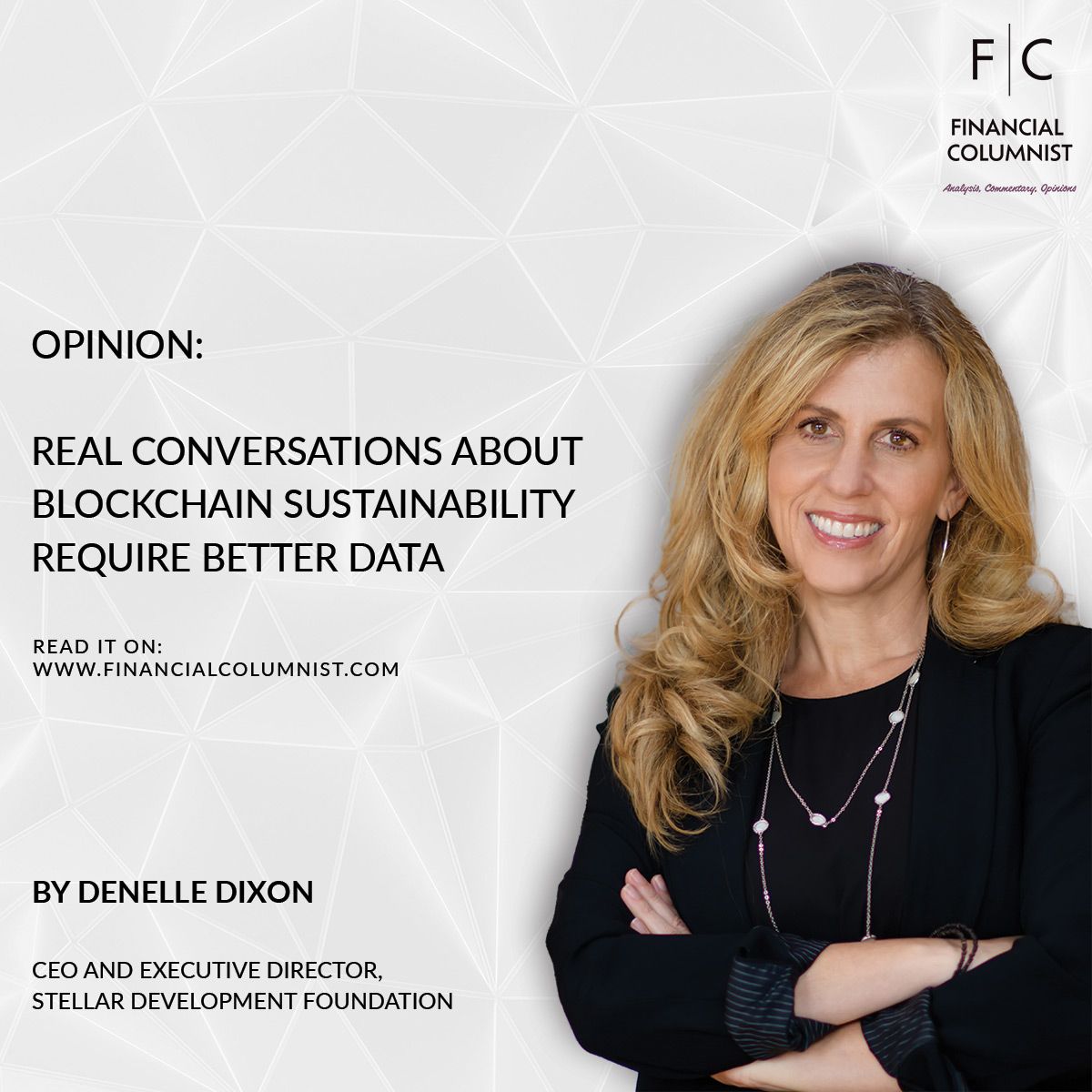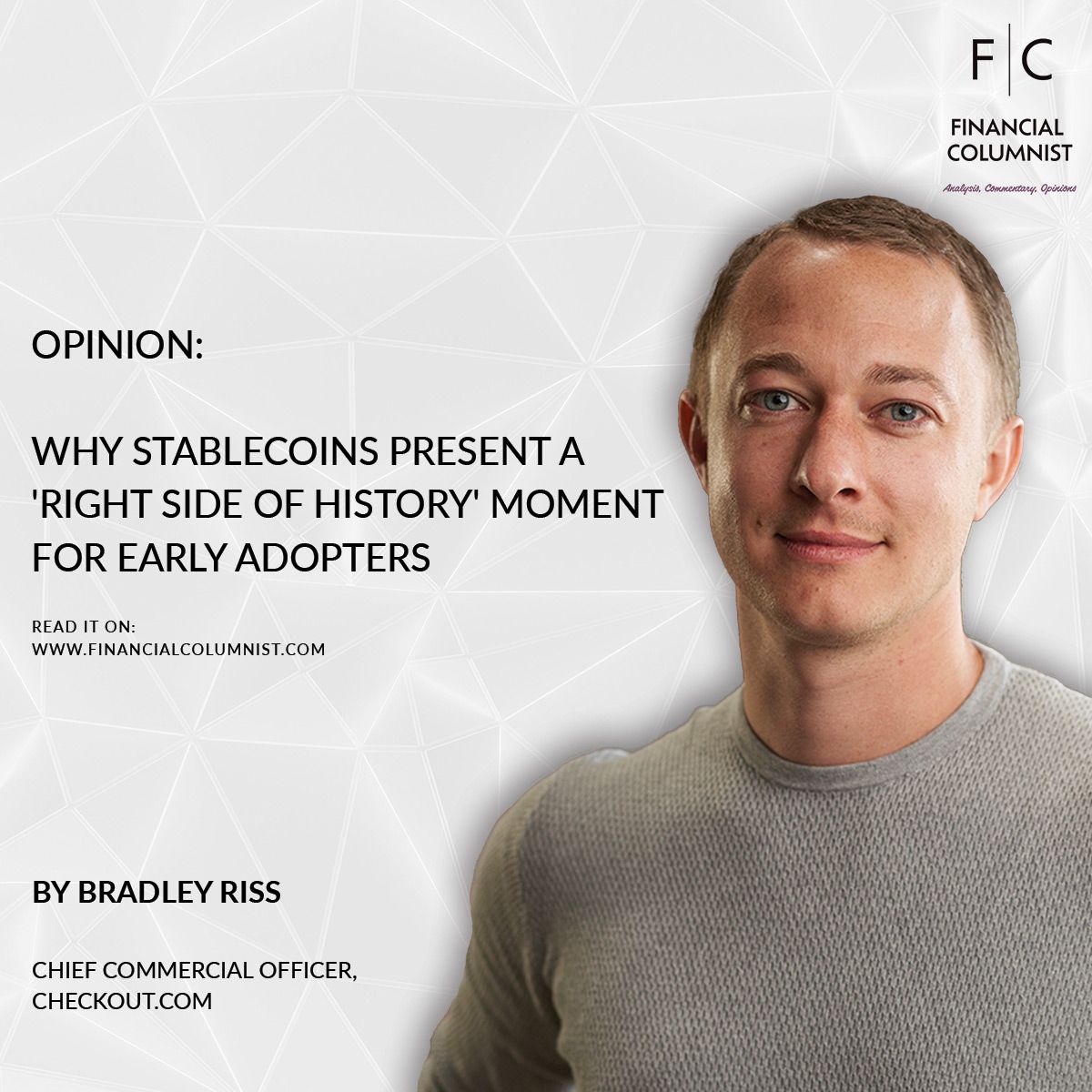Join 120,000+ readers
Analysis. Commentary. Opinions.
The Financial Columnist is a Financial Services publication featuring critical pieces published by decision makers in TradFi and Digital Assets.

Read
Instant Payments in North America Are Scaling. Real-Time Fincrime Compliance Controls Must Scale With Them
At 8:47 p.m. on a Friday, a payment instruction arrives for approval. The customer is known. The destination account looks familiar. The narrative field says “invoice settlement.”
AI Agents in Finance: From Hype to Reality
An examination of what's actually working in production versus what remains experimental.
The Revival of the Merchant of Record (MOR)
TLDR:
Stripe just launched Managed Payments, reviving the Merchant of Record (MOR) model, a structure that has been around for decades but is suddenly critical again. MORs act as the
official seller, handling payments, taxes, fraud, and disputes so you do not have to. Today, the model stretches beyond marketplaces like Amazon and Apple’s App Store into crypto onramps, where players like Coinbase and MoonPay step in as MORs to convert fiat into stablecoins while absorbing fraud and dispute risk. This piece unpacks why MORs are back, who is leading the charge, and why Stripe’s entry signals a broader shift in how global and digital commerce will be structured.
Formal Verification: Establishing Mathematical Trust in Smart Contracts
1) Problem
Smart contracts have created a brand-new operating model for financial services by enabling their execution on a blockchain without intermediaries.
However, the complexity of smart contracts converts each defect into a structural vulnerability. Exploits have already generated losses measured in billions of dollars and have slowed institutional adoption.
On-Chain Trading Data Gaps: Risks for Crypto Market Oversight
This article is adapted from a presentation delivered at the Federal Reserve Bank of New York in April, 2025, where Ethan Chan (CEO, Allium) shared insights on the state of on-chain trading and its implications for consumer protection and market oversight.
Authors: Ethan Chan, William Lai, Carlos Cortes Gomez
As of mid-2025, crypto exchange trading volumes have reached unprecedented levels, spiking above $1.8 trillion in a single month (The Block). Despite millions of new retail traders coming on-chain every month, these participants face two systemic disadvantages: 1) Incomplete market data and 2) Inconsistent trade execution quality.
Stablecoins & Tokenized Deposits - What U.S. Banks and Credit Unions Are Doing Next
Beyond human transactions: The inevitable convergence of crypto and agentic payments
The age of agentic payments - where autonomous AI agents execute financial transactions on behalf of users - has already begun. This is no longer a far-off vision: Google, Mastercard, and Visa have each launched agentic checkout experiences this year; PayPal, one of our partners, rolled out its Agent Toolkit in April.
Compliance Today and How AI Will Transform It
Compliance has always been a cornerstone of trust and stability in regulated industries like banking, insurance, fintech, and payments. Yet, in today’s fast-paced digital world, it’s becoming one of the biggest operational hurdles businesses face. Regulatory frameworks are growing increasingly complex, global expansion is accelerating, and the sheer volume of documents, data, and transactions is overwhelming. Compliance teams are often stretched thin, relying on fragmented tools, manual checks, or outdated processes and the result is increased risk, slower onboarding, and rising costs.
Competing in the Digital Era: How Tier-2 Banks Can Transform Through Fintech Partnerships
The Mid-Tier Bank Dilemma
Tier-2 banks—sometimes referred to as mid-tier banks—face a paradox. They are large enough to feel the full force of customer expectations—real-time payments, seamless onboarding, advanced digital tools—but often lack the resources of global Tier-1 banks to build these capabilities in-house.
Why AI Will Reshape Financial Services — And What Banks Must Do in the Next 18 Months
Artificial Intelligence (AI) is not just another emerging technology. It is a new production function, reducing the cost and spread of cognition in the same way electrification reduced the cost and spread utilization of power. For banks, this shift brings both exponential opportunities and existential risks. The winners will be those that embed AI as a core operating model. The losers risk losing relevance in a market increasingly defined by AI-native fintechs and forward-leaning incumbents.
The Future of U.S. Crypto Regulation: Analyzing the CLARITY Act and the RFIA
The Administration, Congress, and regulators continue to advance efforts to establish legal and regulatory clarity for digital assets in the United States. The recent passage of the Guiding and Establishing National Innovation for US Stablecoins of 2025 Act (GENIUS Act), on 18 July 2025 was a significant milestone and
cleared the way for the more challenging task of addressing digital asset market structure legislation.
AI and Treasury Management: Why New Players Are Rising
The financial services industry is experiencing an unprecedented AI investment boom that signals a fundamental shift in how institutions operate. According to Allied Market Research, AI in financial services reached $13.7 billion in 2023 and is projected to surge to $123.2 billion by 2032.
The new Paradigm of Alternative Investments (ALTS) and how GenAI is transforming this growing area
The President and his team need to be commended for the significant steps taken to expand the type of investments allowed within 401K retirement plans to include Alts such as private equity, real estate and digital assets. While these changes are good for diversification they also introduce new risks and fiduciary responsibilities.
As Bitcoin Shines, the Rest of the Crypto Universe is Severely Lagging
The arrival of a crypto-friendly regulatory and enforcement environment for the US digital asset industry in early November of last year held everyone’s expectations high with respect to the future performance of digital assets.
Preventing Cryptocurrency Scams in 2025: Emerging Strategies and Policy Innovations for a Safer Fintech Ecosystem
Cryptocurrency scams cost investors an estimated $9.9 – $10.7 billion globally in 2024, driven largely by AI-generated fraud and pig butchering schemes. Generative AI has industrialized fraud at an unprecedented scale, exploiting crypto’s decentralized nature with deepfake impersonations, phishing exploits, and automated chatbots.
LLM Models and the real impact on the Financial Services Industry
During my recent visit to India, I had the good fortune of meeting several startups and scale ups and was rather surprised to see the amount of emerging Unicorns in the space who leverage LLMs. I must say I was partial to the LLMs that we use extensively in Financial Services from FinGPT, FinBot, InvestLM, BloomGPT, FinLlama etc .
Monetary Transmission in the Age of Code
What happens when billions of dollars move at the speed of code? According to the Bank for International Settlements (BIS), the effect on U.S. Treasury markets is material—and not necessarily benign. A $3.5 billion inflow into stablecoins caused 3-month Treasury yields to drop by 2 basis points (BPS); the same volume flowing out led to a 6 BPS increase. This isn't background market noise—it’s a measurable monetary signal, revealing the capacity of code to co-opt traditional policy tools.
The Evolution of Financial Services Cloud Ecosystems: From Disruption to Transformation
"Nothing is permanent except change." - Heraclitus
Introduction: The Great Unbundling
There was a time when some of the largest technology companies believed that they had unique ability to tackle the major regulated industry challenges. The industry demanded greater efficiency, risk management and global availability, among the core requirements. Many of those legacy providers built moats that were deep and well fortified. Slowly, change began to take place.
From Permission to Preparedness: U.S. Regulators Shift on Crypto
Two of the most powerful banking regulators—the Office of the Comptroller of the Currency (OCC), which supervises national banks, and the Federal Deposit Insurance Corporation (FDIC), which oversees insured state banks, have quietly redefined how financial institutions can interact with crypto.
Tokenization: Balancing Unlimited Potential for Financial Markets while Navigating a Complex Landscape
Tokenization is no longer a futuristic concept relegated to the fringes of finance. It is rapidly emerging as a transformative force with the potential to reshape how we own, trade, and manage assets. While the initial hype surrounding blockchain1 and cryptocurrencies may have obscured tokenization’s true potential, its underlying principles of fractionalization, automation, and enhanced transparency are poised to unlock unprecedented opportunities for investors, businesses, and the global economy. 2 3
Why KYB is Broken: Global Challenges, Costs, and the Path Forward
In today’s digital-first world, where businesses scale across borders faster than ever, verifying the legitimacy of other businesses shouldn't be a bottleneck. But it is. Know Your Business (KYB), a core requirement for onboarding and compliance, is outdated, fragmented, and painfully manual. Whether you’re a fast-moving fintech or a legacy financial institution, the same problems persist, inconsistent data, high compliance costs, long verification times, and broken user experiences. It’s time to ask the hard question: Why is KYB still broken in 2025?
Stablecoin Founders, Wake Up.
There’s a storm brewing in stablecoin payments… and no one wants to talk about it.
Every day, we watch promising founders and fast-scaling teams sleepwalk into security decisions that would make a bank compliance officer faint. Wallets cobbled together from unmaintained smart contracts. Funds left sitting on exchanges as if FTX never happened. “Custody” outsourced to a multisig with EOA signers and no audit trail. And worst of all: the normalization of shortcuts.
From Perimeter to Plumbing: The Hidden Gaps in US Stablecoin Policy
Stablecoins have quickly catapulted from the fringes of crypto into the core of U.S. financial policymaking. What began as a tool for on-chain liquidity is now being treated as critical monetary infrastructure that Washington can no longer ignore.
The GENIUS Act Is a Turning Point for Stablecoins—But the Work Isn’t Over
In crypto policy, extremes have defined the narrative. One side demands full institutionalization; the other cries overregulation. The result? Years of noise, and very little signal.
That changed on March 13, 2025, when the Senate Banking Committee passed the Guiding and Establishing National Innovation for U.S. Stablecoins (GENIUS) Act with a bipartisan vote of 18-6. It marks the first comprehensive federal framework for regulating stablecoins in the U.S.—and the most pragmatic attempt we’ve seen yet.
The Stablecoin Revolution: Financial Disruption or Hype?
Foundational financial infrastructure is being rearchitected with new modern digital primitives - blockchain technology as a new global transparent ledger and currency backed stablecoins as the medium for value transfer. Stablecoins promise an instantaneous, inexpensive and unrestricted means to transact anytime and anywhere using a currency-backed token. Still, despite growing optimism, stablecoins today remain largely dependent on the same legacy financial rails it claims to disrupt, and the competitive advantages or value propositions vary between geographic regions and transaction types.
From Cost Center to Profit Engine: How Embedded Banking Transforms Money Mobility
I’ve spent most of my professional life working on ways to move money more efficiently—what I often call “money mobility.”
Over the years, I’ve seen a lot of buzzwords and promises come and go, but one trend that’s truly reshaping our industry right now is the shift from embedded payments to embedded banking. If we get this right, we can help businesses turn the cost of payouts into a genuine revenue driver.
A New Era for U.S. Crypto Regulation
During his campaign and early presidency, Donald Trump made bold promises about supporting cryptocurrency. Now, with Executive Order 14178, he has taken a concrete step toward reshaping U.S. digital asset policy. Titled “Strengthening American Leadership in Digital Financial Technology,” this order explicitly protects the right to access and use public blockchain networks for lawful purposes without government persecution.
From Legacy to Ledger: The OCC Just Gave Banks a Blockchain Advantage
I. Introduction
In a quiet but paradigm-shifting move, the Office of the Comptroller of the Currency (OCC) has rescinded Interpretive Letter 1179 (November 18, 2021) and reaffirmed that national banks and federal savings associations may engage in crypto-asset custody, operate distributed ledger (DLT) infrastructure, and issue stablecoins under specific regulatory conditions. The OCC's March 7, 2025, policy update clarifies these permissions, rolling back previous restrictions on tokenized deposit issuance, blockchain transaction validation, and digital asset settlement mechanisms (OCC, 2025).
The Future of Fraud Prevention: Cognitive Approaches to Digital Identity in an AI-Powered World
The digital identity and risk decisioning landscape stands at a critical inflection point—a moment where traditional fraud prevention measures have become alarmingly vulnerable to sophisticated attacks. As cybercriminals harness AI and automation to bypass conventional security measures, organizations aren't just falling behind—they're facing an existential threat to their digital trust infrastructure.
How Different Definitions Shape Regulation and Enforcement
Until recently, the US federal government has lacked both consistency and support for digital assets. Agencies have each defined the term “digital assets” differently, leaving the industry with conflicting interpretations depending on the regulatory agency involved. This lack of clarity has caused jurisdictional disputes, compliance challenges, and enforcement difficulties.
Millennials are choosing Bitcoin over real estate — here’s why
It’s undeniable that Millennials and Gen Z are facing financial challenges that their parents never really experienced. And while there are many reasons, some of the main causes for this generational gap are the soaring real estate prices and the fact that traditional financial assets have become increasingly inaccessible for many within the younger generations.
The Future of Compliance in Crypto: Embracing Compliance by Design
Compliance has never been more of a burden on companies and organizations than it is today. This can be explained by several factors, including the rise in volume and complexity of financial crime, more opportunities and incentives to commit fraud or engage in money laundering, and the sheer number of laws and regulations that exist today compared to even 20 years ago, as regulators around the world try to remain one step ahead of bad actors.
SEC v Coinbase—the Black Knight, Bosses, and the Limits of Regulation by Enforcement
Judge Failla handed down her opinion on Coinbase’s motion to dismiss the SEC’s complaint in late March. Crypto enthusiasts, the FinTwit crowd, and even industry analysts paid little attention. The continuing saga of supervision of sponsor banks and the settlement of the injunctive class in the decades-long interchange litigation dominated the week’s agenda. I think the opinion merits more attention than it received. It sends an important signal of the limit of the SEC’s effort to regulate the digital asset industry. It also provides an opportunity to discuss the downsides of the use of enforcement to achieve regulatory objectives.
The MiCAR and Travel Rule Regulation Flight has now taken off! Will the flight be a turbulent one with a smooth touchdown?
Anyone who is directly or indirectly involved or remotely interested in the world of Cryptocurrencies has heard of the Markets in Crypto Assets Regulation (MICAR) by now. In short, MICAR aims to bring regulatory certainty and harmonisation in Europe by regulating Issuers and Crypto Asset Service Providers (CASPs) who wish to offer their services in Europe. This will result in CASPs and Issuers being able to passport their services across Europe, once authorised or registered in a chosen Member State. Notably, MiCAR is a direct regulation and not a directive. The raison d’etre for this is to leave out any room for potential regulatory arbitrage (although this will happen in other forms as I will briefly touch up on a bit later).
We Don’t Need Roads
For people of a certain age, those four words have a Proustian quality. When I read them, I flashback to the summer of 1985. I see Christopher Lloyd as Doc turn to Michael J. Fox as Marty McFly and utter the now-famous line. I can smell the sweet sticky perfume of buttered popcorn, new Coke, and Skittles that hung in the air. I remember, too, my shock the following February when President Reagan, with just the hint of a smirk, quoted the line in his State of the Union speech in an effort to urge young Americans, like me, to be optimistic about our collective future. All of that came rushing back a few nights back as I skimmed the highlights of the Federal Reserve’s 2022 triennial survey of payments in search of a way to explain a significant but seemingly overlooked change to the law of payments rolling out across the United States.
Fintech’s Emerging Role in Fighting Global Poverty
While today we often associate financial services with large banks, digital currencies, and payments as well as new apps and services, there are still places in the world where financial services is an analog experience – person-to-person and focused on building a community.
Will consumers pay with Crypto? Probably not
To say these are rocky times in the crypto sector would be somewhat of an understatement. As the US discourse has become increasingly vitriolic, many fear that US innovation across Web3 will be hampered—but what innovation would be missed? There have been too many scams, rug pulls, blind celebrity endorsements, and snake oil salesmen. As Circle’s Jeremy Allaire noted during their Converge conference last year, this is the time to realize a better future for the sector.
FinTech is getting messy…and that’s a good thing
Happy New Year, FinTech! Welcome to 2023, the year that FinTech really gets messy.
2023 - The Year of Crypto Myth-busting and Education
2022 was a whirlwind year for crypto, to say the least.
While the year started off strong, with real technological advancements and excitement about its potential, there were noticeable challenges. Overnight support in the millions to Ukraine, 1 billion donated in COVID relief, and legislative gains in the EU and Asia, were accompanied by headlines around Terra Luna, Celsius, and Three Arrows. At the end of the year, the latest revelations about FTX and the alleged criminal activity of a small group of people within the company sent massive shockwaves through the entire crypto industry. Given its importance in the space, the contagion and fallout may not be over.
If there is one message that came across loud and clear, it’s that regulatory clarity is needed – and it’s needed now.
Real conversations about blockchain sustainability require better data
Sustainability. It has become a loaded topic generally and even more so in the blockchain industry. Unfortunately, the mainstream conversation has led to a lot of misconceptions about blockchain’s environmental impact. Regardless of how familiar one is with the applications of blockchain technology or use cases for cryptocurrency, mentions of blockchain and proof-of-work consensus mechanisms are now synonymous with high energy use—without a parallel focus on the actual value being generated behind the energy use.
Knowing Where the Buttons Are (or Why Every FinTech Should Have a Good Lawyer Around)
I often get asked why I made the switch from lawyer to investor. Usually, it is from lawyers slightly jealous that I no longer need to account for my time in six-minute increments and sometimes from financiers slightly wary that I am encroaching on their turf. Although there is no single answer to that question, I thought the launch of this column would be a good place to lay out why I did what I did and what I believe every entrepreneur building in the FinTech space should look for in a lawyer.
Why stablecoins present a 'right side of history' moment for early adopters
It's fair to say that businesses are still uncertain about how cryptocurrencies can benefit their bottom line and/or enhance customer experience. With many consumers still wary of anything blockchain-related, and markets well into our periodic "crypto winter" season, it's understandable that business leaders might wonder what they can expect from digital assets. Well, the good news is we are seeing the move from speculation to utility, and nowhere more is this obvious than with the emergence and meteoric rise of stablecoins.


